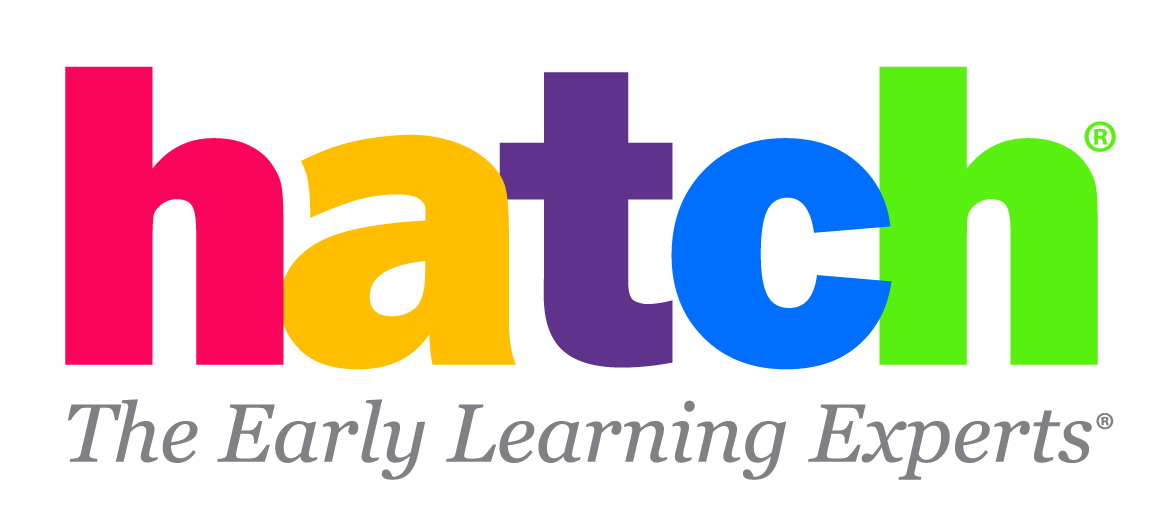-
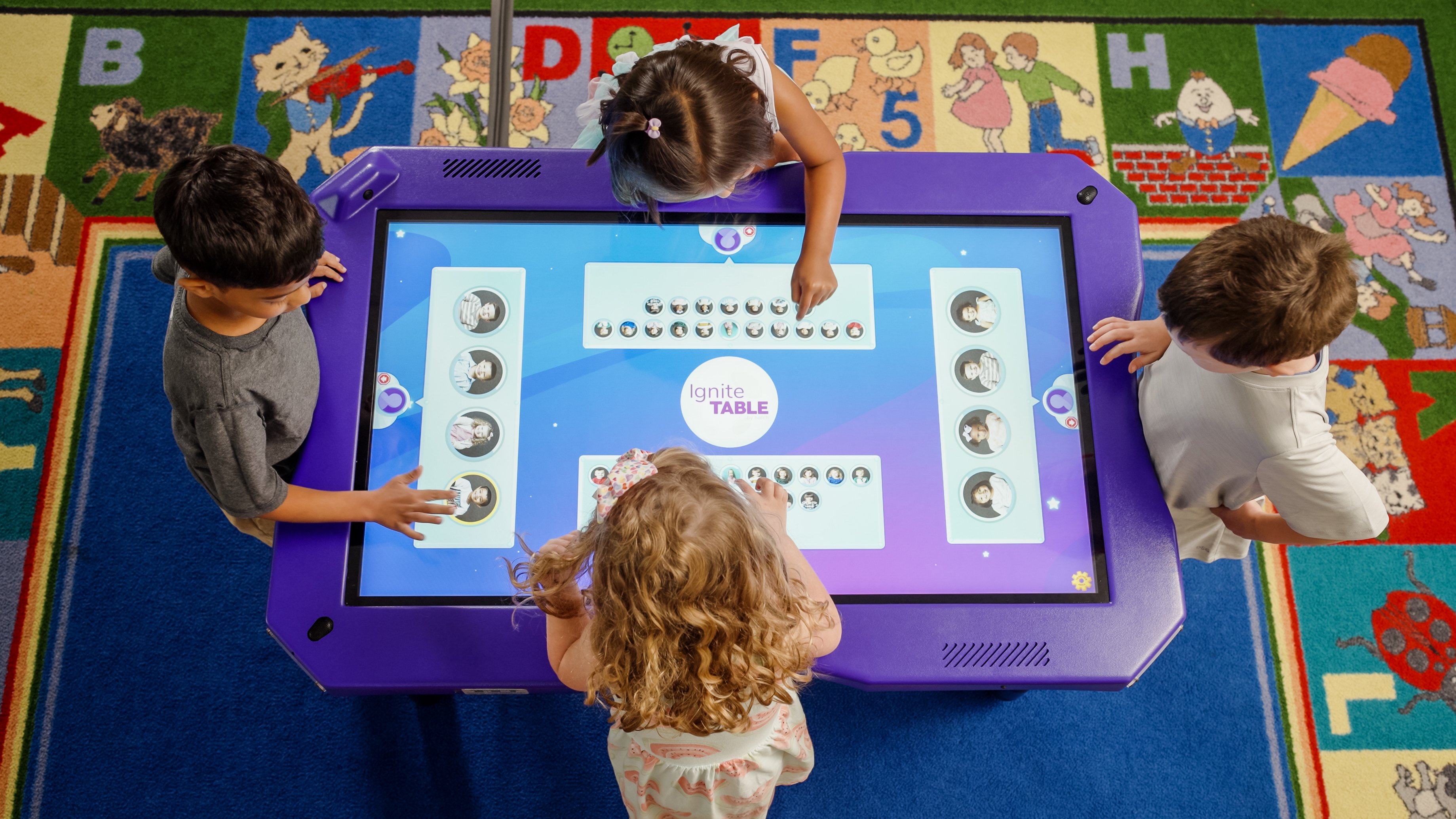
A classroom perspective on leveraging technology to effectively support social development goals and develop life skills for students with special needs. Developing social skills is just as important as academic growth for students with special needs. Skills such as turn-taking, teamwork, and effective communication are essential for navigating everyday interactions. However, teaching these skills can be particularly challenging for students with communication, sensory processing, or social engagement needs. -
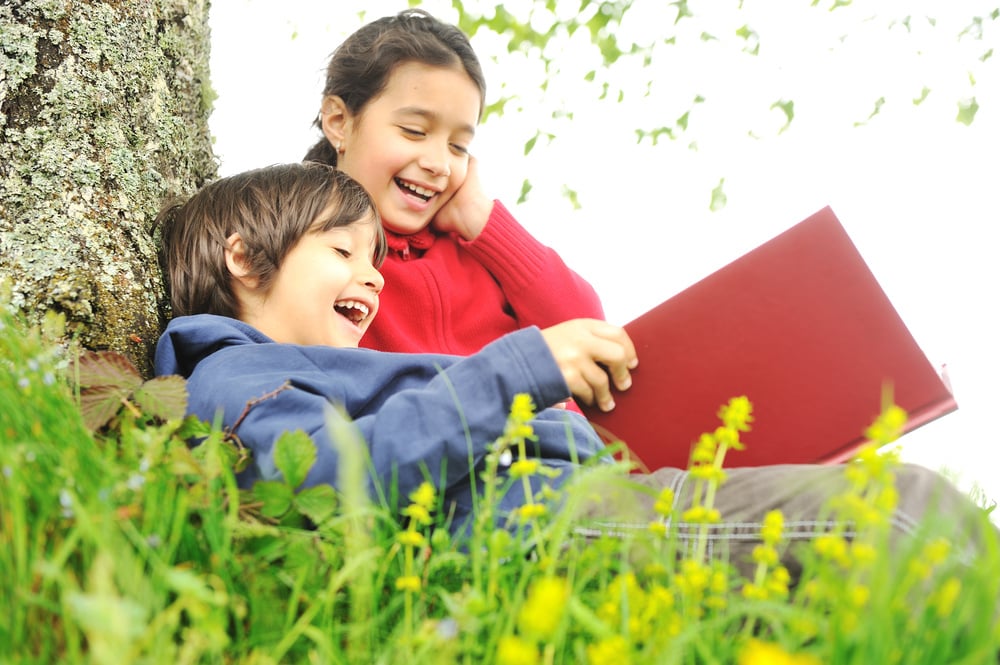
Do more to improve your score - With Ignite by Hatch™! Newly released scores from the National Assessment of Educational Progress, often referred to as the Nation’s Report Card, show that fourth graders have lost ground in reading and Math— not just compared with the status quo of 2019, but also the most recent round of the exam, which was conducted during the heart of the pandemic. -
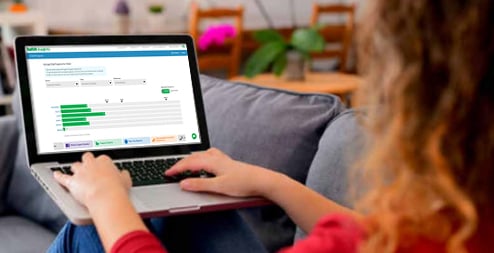
At Hatch Early Learning, we believe assessment is a compass that guides each child’s learning journey (Rymanowicz, 2024). However, assessment in early childhood classrooms can be challenging due to the complexity and variability of young children’s development (Ackerman & Coley, 2012). This is where formative assessment proves especially valuable, as it involves continuously gathering information about what children know and can do, then using that information to guide instruction (Riley-Ayers, 2018). Research shows that effective use of formative assessment can double learning rates (Black & Wiliam, 2018). -
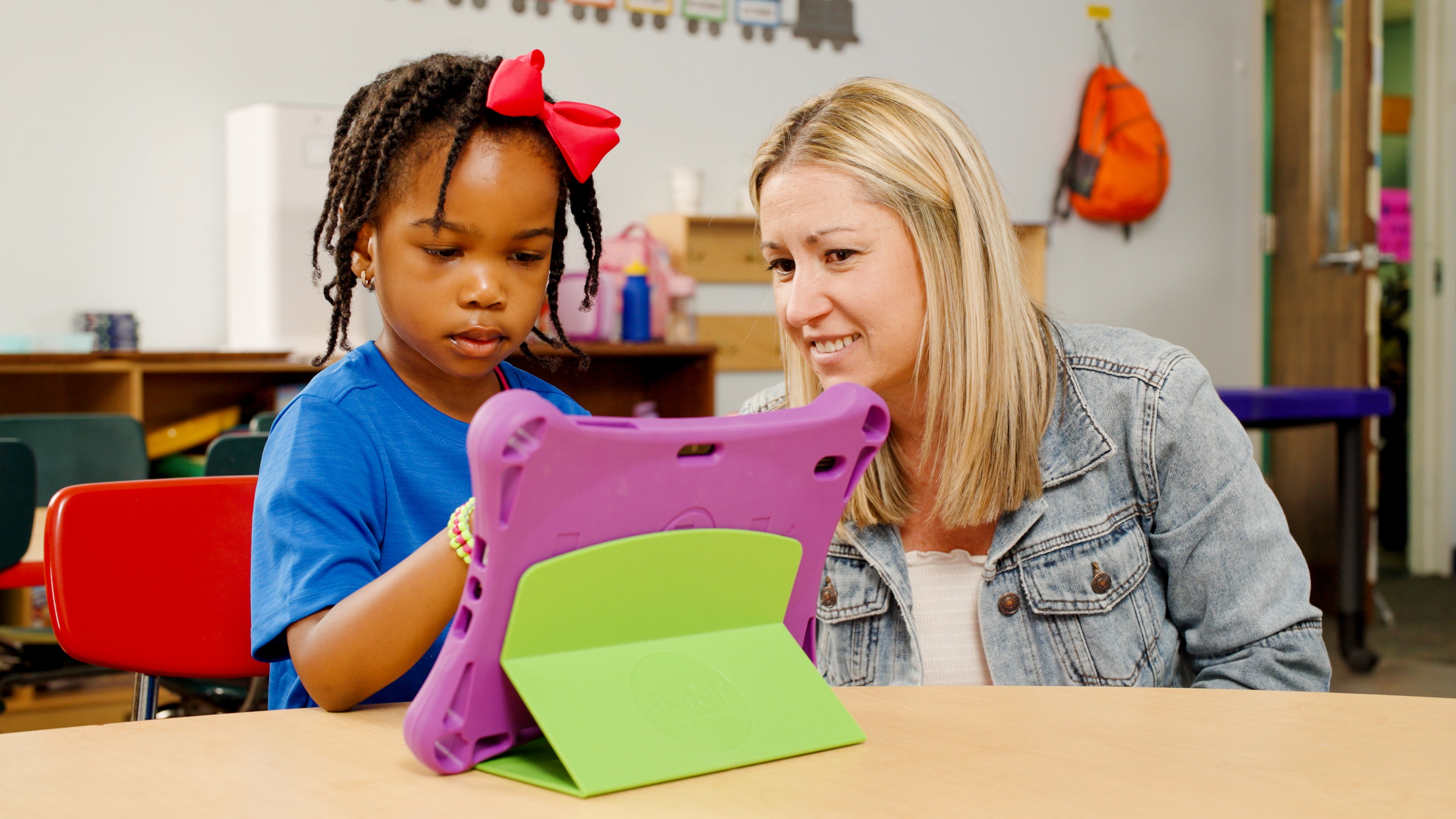
In the early years of a child’s life, building literacy skills is critical for long-term success. We sat down with Dr. Angela M. Wiseman, Associate Professor of Literacy Education at North Carolina State University, to discuss the importance of early literacy and how Hatch Early Learning’s Ignite by Hatch™ platform is designed to support children’s literacy development. -
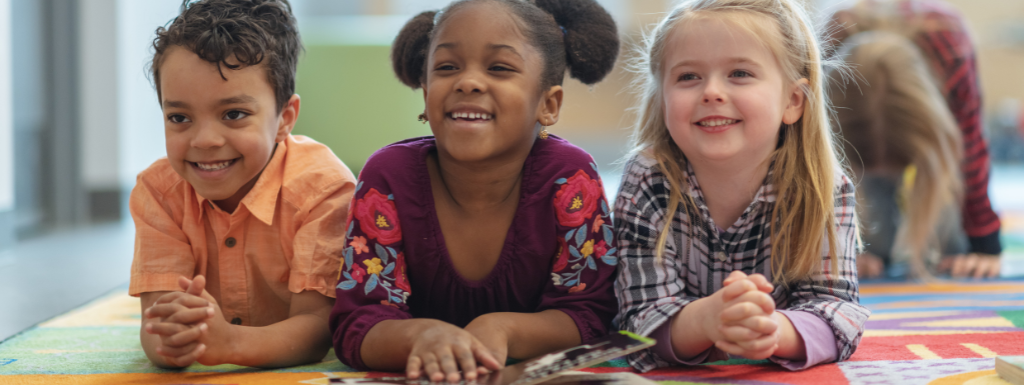
With the increasing emphasis on the importance of adopting evidence-based, Science of Reading aligned materials to support literacy instruction, it is important for educational leaders to consider the five pillars of literacy and how they are addressed throughout the vast expanse of programs available. -
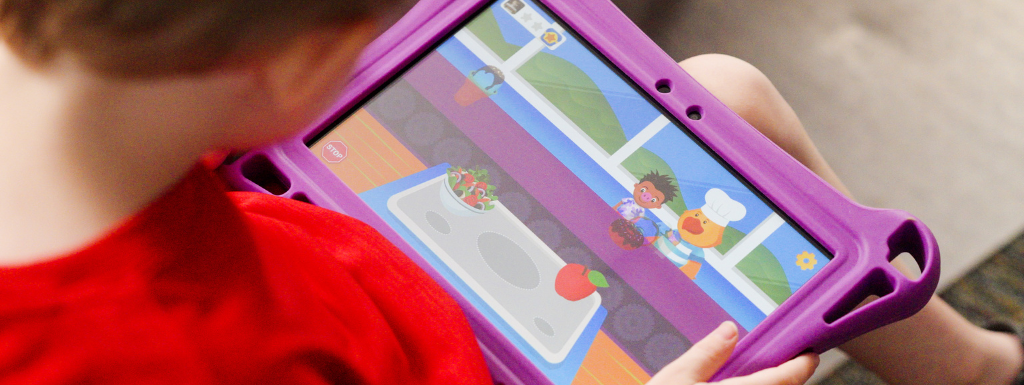
Educators are acutely aware that children start the school year with a wide range of knowledge and skills. One child’s struggle can be another child’s strength, which makes it challenging to tailor instruction while responding to each child’s unique needs. In response to these challenges, there have been calls to support children with different skill sets through personalized learning (Sokolowski & Ansari, 2018). Personalized learning involves creating unique learning experiences tailored to each child's needs (Dumont & Ready, 2023). -
In today's fast-paced educational landscape, finding tools that blend engaging learning experiences with evidence-based methodologies is paramount. Ignite by Hatch™ and Key Foundations by Hatch™ are two powerful resources designed to support educators and students alike. These solutions not only foster foundational literacy skills but also ensure that children are ready for the next stages of their academic journey. -
In the realm of education, the relationship between school administrators and teachers is crucial for creating a thriving learning environment. However, this relationship can sometimes be strained due to differing perspectives, goals, and responsibilities. One powerful strategy to bridge this gap and foster a more cohesive school community is collaborative reflection. By engaging in reflective practices together, administrators and teachers can enhance mutual understanding, improve communication, and work towards common goals. -
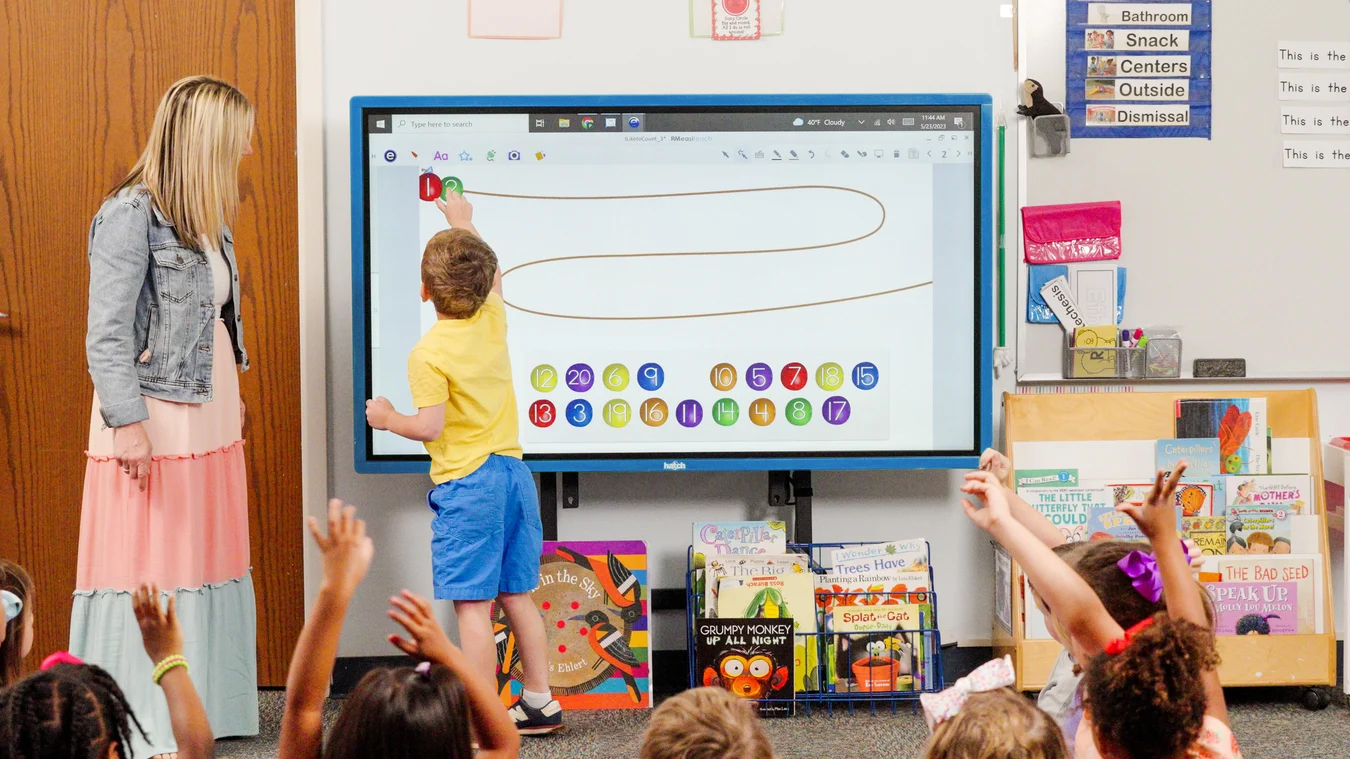
Welcome to the dawn of a new era in early childhood education with IgnitePanel by Hatch™. Designed to revolutionize the way educators engage and inspire young learners, IgnitePanel is more than just an interactive solution – it's a catalyst for transformation in the classroom. Let's delve deeper into how IgnitePanel is reshaping the landscape of early childhood education: -

Almost everyone you know can share a story about a teacher that went above and beyond to make an impact on their life. Teachers give their all daily to help children learn and become successful. Some teachers, however, go above and beyond, choosing to work with populations that need more attention than the average student. Andrew Donnelly is one of those educators. -

When the school year winds down and summer approaches, early childhood educators and administrators have a unique opportunity to foster a love for reading and support foundational literacy skills in young children. One innovative way to achieve this is by encouraging families to start a summer book club with their little ones. -
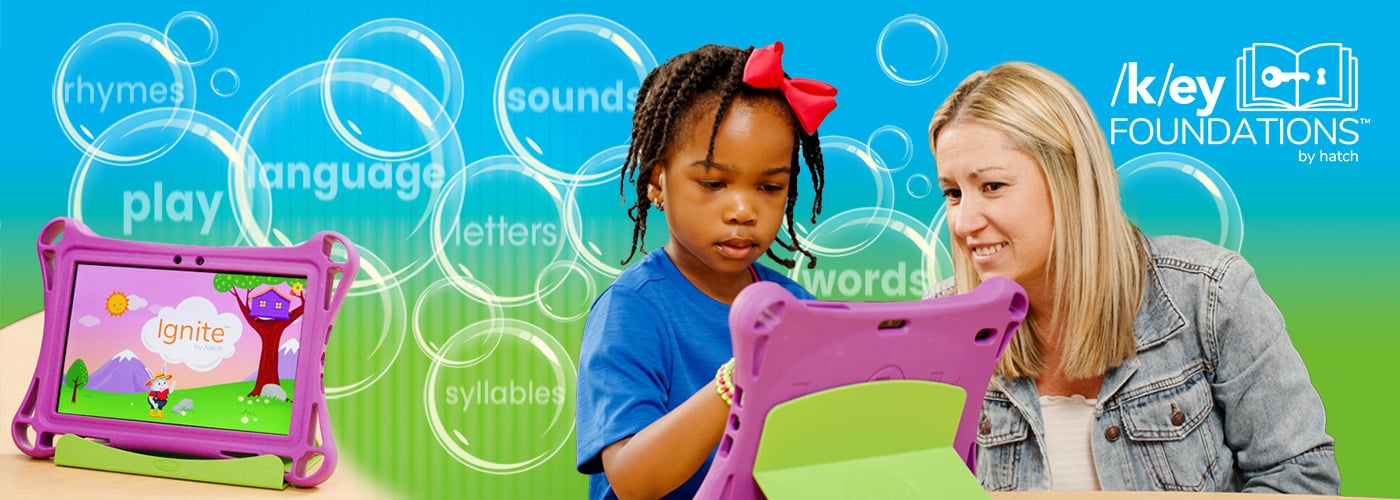
Fostering key literacy skills is important for laying a strong foundation for a child's future academic success. As educators, it's crucial to understand the key elements of literacy instruction to ensure that learners not only learn to read but also learn how to comprehend, analyze, and engage with written words. Seven key early literacy skills that set children up for literacy success are listening, oral language, vocabulary, phonological and phonemic awareness, phonics, fluency, and comprehension. -
.jpg)
As you welcome children back into your classrooms, remember that Hatch™ solutions are the perfect tools to provide engaging transitions back to learning! Your Hatch Insights™ dashboard will give you real-time data that shows which skills may need some reinforcement after an extended break. Keep reading for even more valuable tips, exciting updates, and much more! -
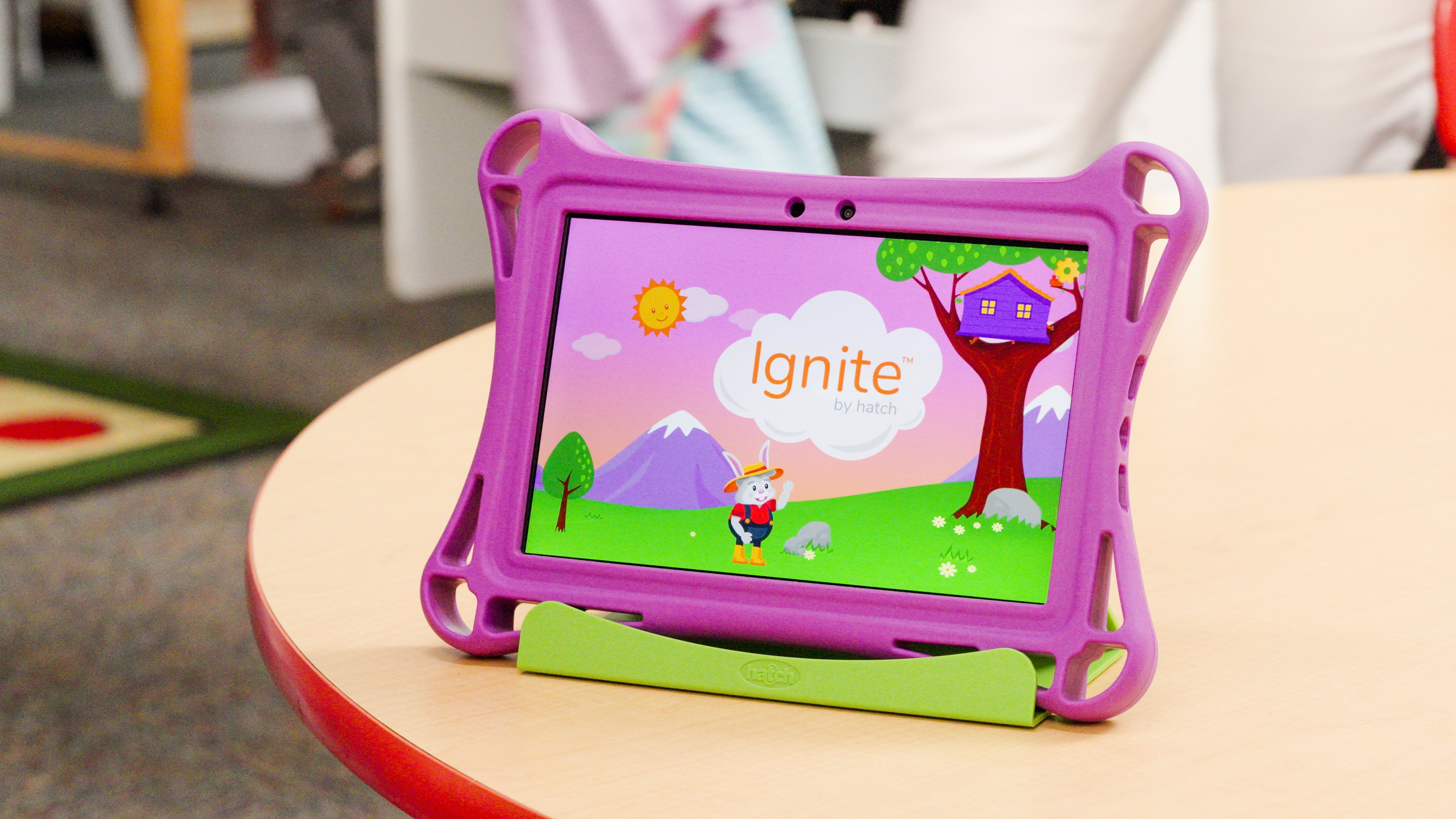
A key to fostering kindergarten readiness in children hinges on supporting children’s learning both in the preschool classroom and at home (Galindo & Sheldon, 2012). At Hatch Early Learning, we understand the important connection between home and school for children’s early learning. Therefore, Ignite by Hatch™ is built to support children’s learning at school while seamlessly connecting that learning to their homes. -

Season's greetings from the Hatch team! Don't forget that families and caregivers can continue their fun and educational journey with Ignite by Hatch™ right from the comfort of their own homes. Keep reading for even more Hatch tips and updates! -

Summer is a season filled with excitement and fun adventures, but it also brings the challenge of the dreaded "summer slide," when students can lose some of the knowledge and skills they worked so hard to gain during the school year (Quinn & Polikoff, 2017). For the third summer in a row, pre-K students in the Georgia Department of Early Care and Learning (DECAL) Summer Transition Program kept the learning going throughout the sunny months, in part by using Ignite by Hatch™. Ignite is a digital learning tool for young learners that is designed, based on research from the learning sciences, to support kindergarten readiness (Hatch Early Learning, 2022). When children engage with Ignite, they practice and demonstrate their understanding of standards-aligned skills across seven domains: Mathematics, Literacy, Language & Communication Development, Social and Emotional Learning, Science & Technology, Physical Development, and Social Studies. As children play in Ignite, they move through a series of eight levels of skills in each domain that become progressively more rigorous. Levels 1–3 in Ignite are aligned to the pre-foundational skills children are expected to learn in preschool. Level 4 skills are aligned with kindergarten readiness, and Levels 5–8 move into elementary-school skills. -

At this point in the year, the children in your program have completed Entry Experiences in Ignite by Hatch™ and have begun to move through Core Experiences. Don't forget, you have the ability to monitor their progress through the child skill detail report along with many other report options. Read below for helpful tips, updates, and more! -
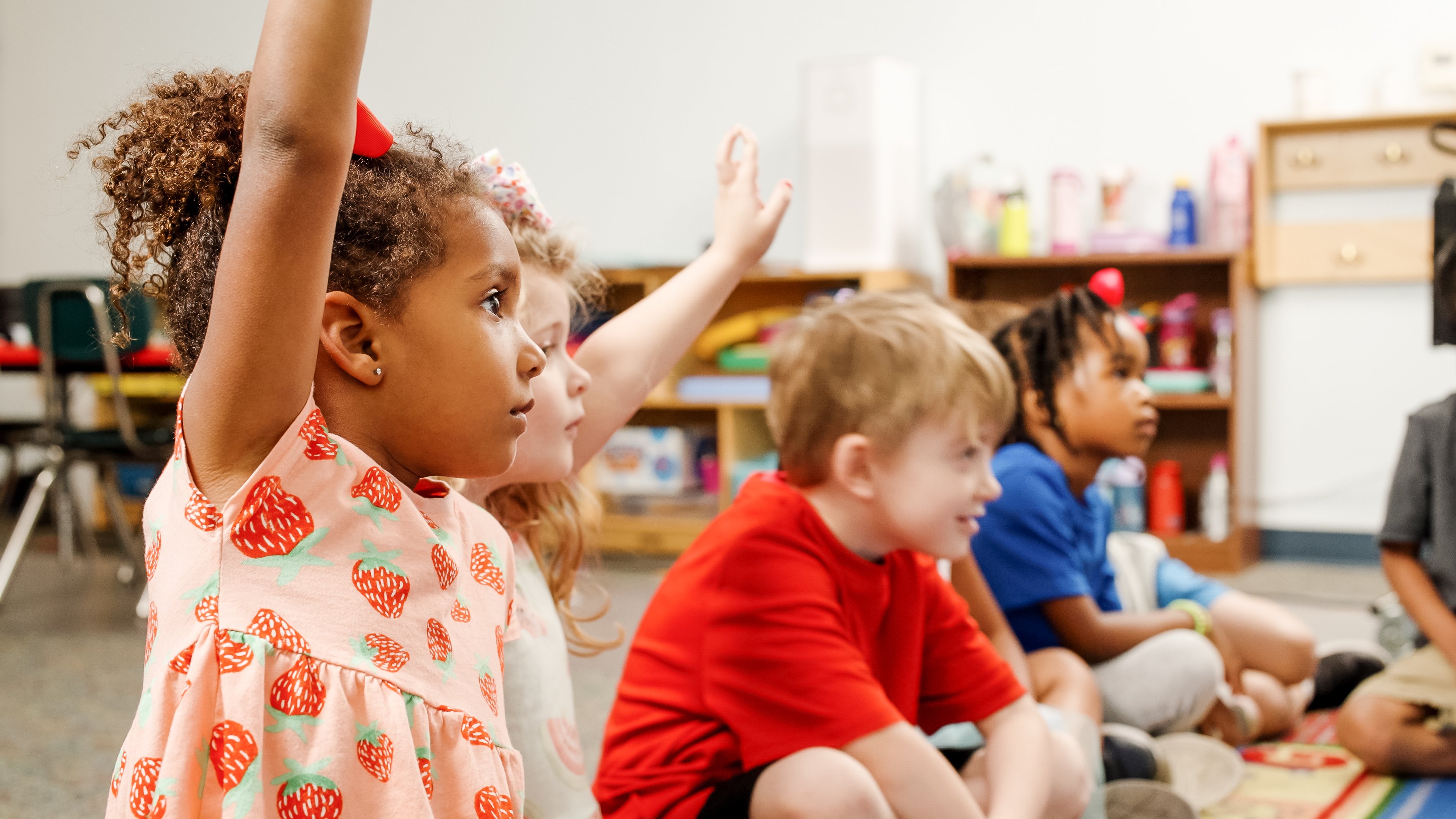
Reading is a fundamental skill that lays the groundwork for a successful academic journey and a fulfilling life. In today's fast-paced world, the ability to read proficiently is crucial for personal and academic growth. However, not all children find learning to read an easy task. The science of reading is a comprehensive approach to literacy instruction that aims to identify and address the fundamental skills necessary for reading success. At Hatch, we support the key principles of the science of reading that nurture the essential literacy blocks and their significance in fostering strong foundational language and literacy skills for children. -

In today's digital age, incorporating technology in early childhood classrooms has become increasingly common. However, not all digital learning tools are created equal. It's essential for educators to choose high-quality resources. -

In today's rapidly evolving world, where technological advancements are transforming every aspect of our lives, it is imperative to equip young learners with skills that will enable them to thrive in the future. As educators, it is essential to recognize the significance of incorporating diverse learning approaches that stimulate children's curiosity and problem-solving skills. One such approach that has gained recognition in recent years is the integration of engineering concepts and principles into early childhood curricula. -
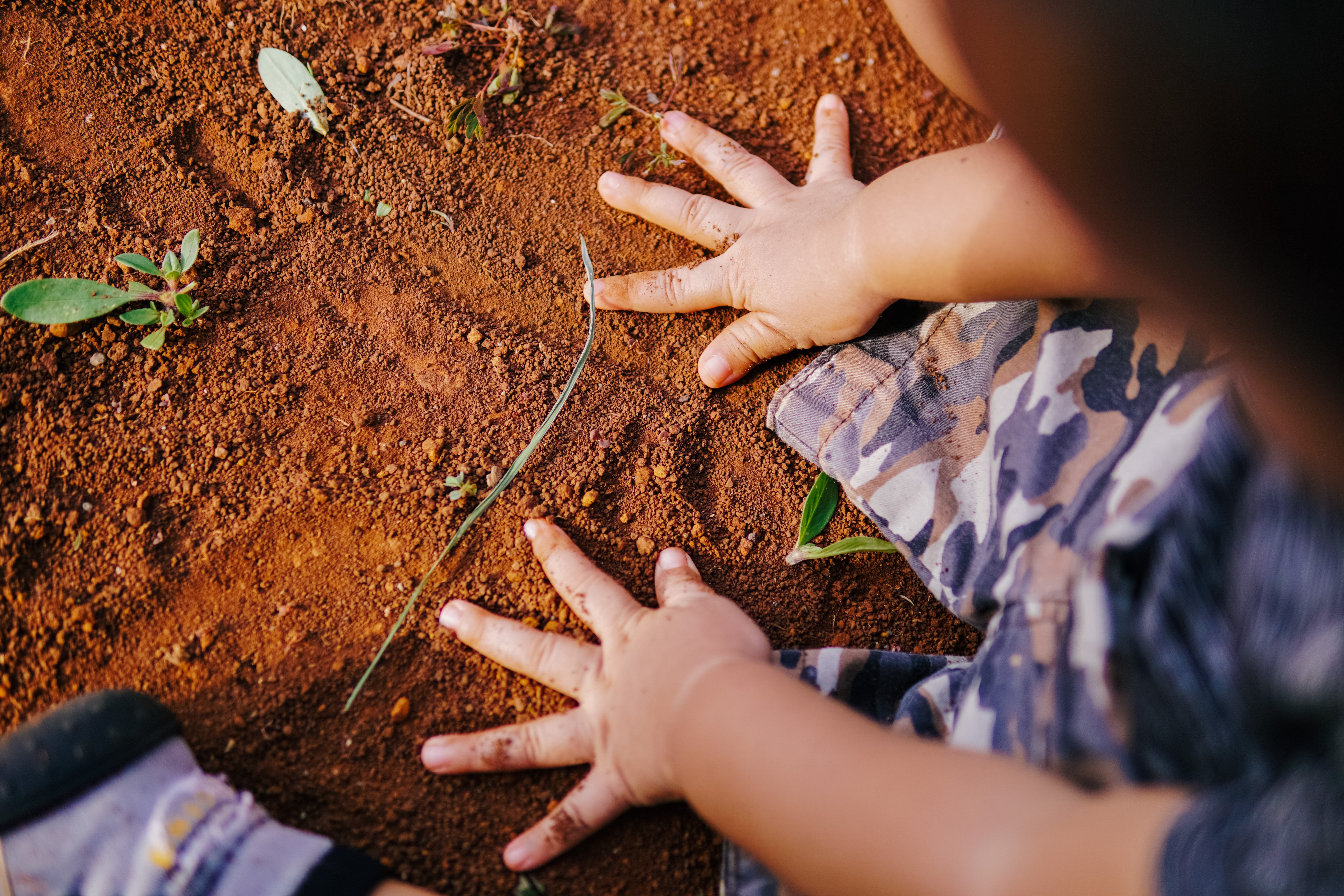
The summer months provide children with a break from the daily schedule in the classroom. Children need time to engage in playful activities that pique their curiosity, allow for more freedom, and, especially, provide more hands-on time in the great outdoors. -

At Hatch, we believe every week should be Teacher Appreciation Week. But next week is officially Teacher Appreciation Week — so we hope you’re planning an even bigger “thank you!” for all your amazing teachers. Whether you plan on decorating classrooms or loading up on your teachers’ favorite treats, there’s no better time than Teacher Appreciation Week to show your teachers how much they mean to your learning program. -
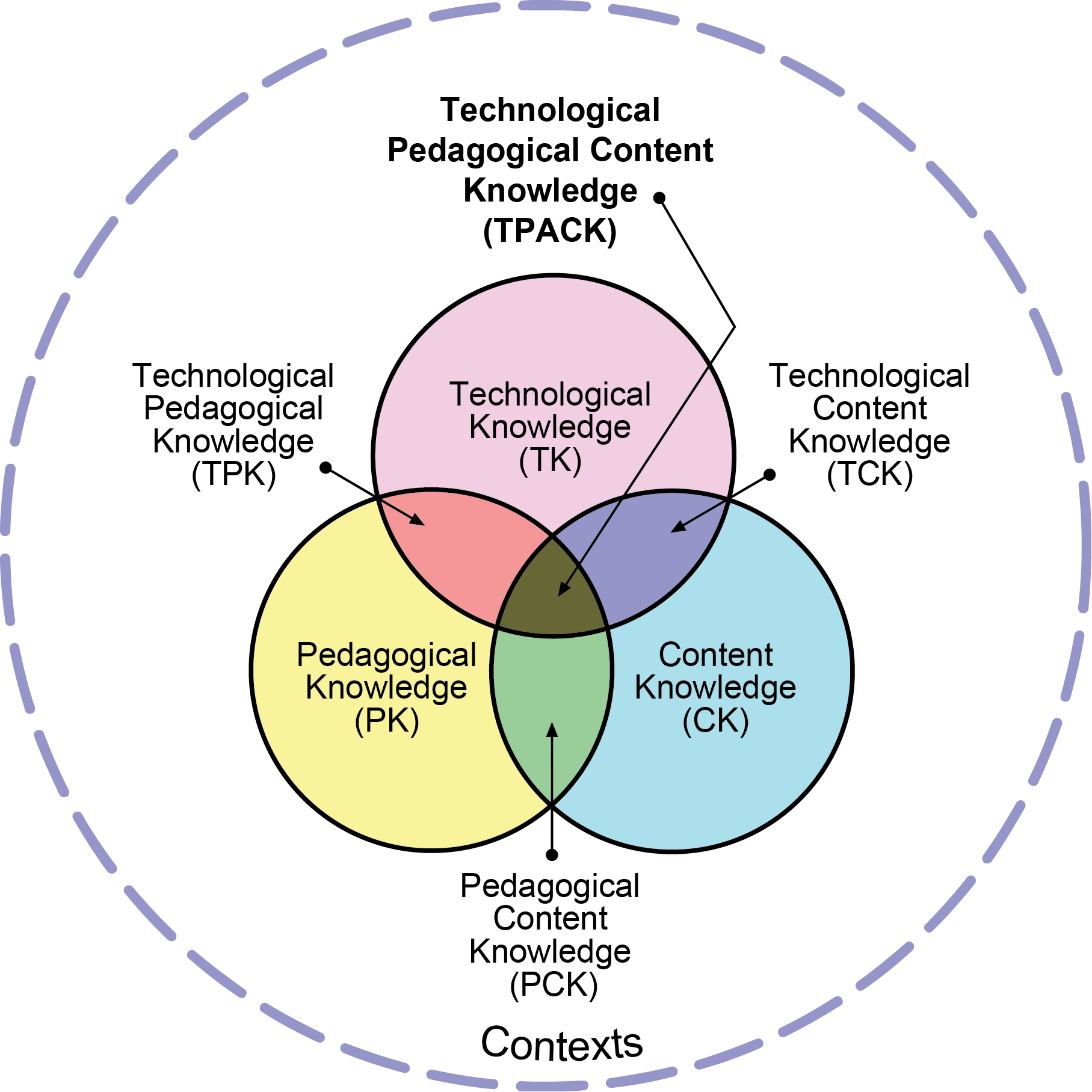
It has long been established that in the early childhood classroom, learning is best approached as playful business. And why not? The joyful practice of learning how to assemble healthy meals with pretend food, or the rhythmic expression of acting out the lifecycle of a butterfly presents the opportunity to spark excitement for even the most reluctant of learners. In fact, encouraging our youngest students to develop a lifelong love of learning must be initiated in a fun, carefree way — especially considering their minimal attention spans. Throughout the literature on early childhood education, best practices for learning through play in offline learning environments are well-substantiated. However, in our increasingly digital world, researchers are suggesting it is time we make space for innovation. -
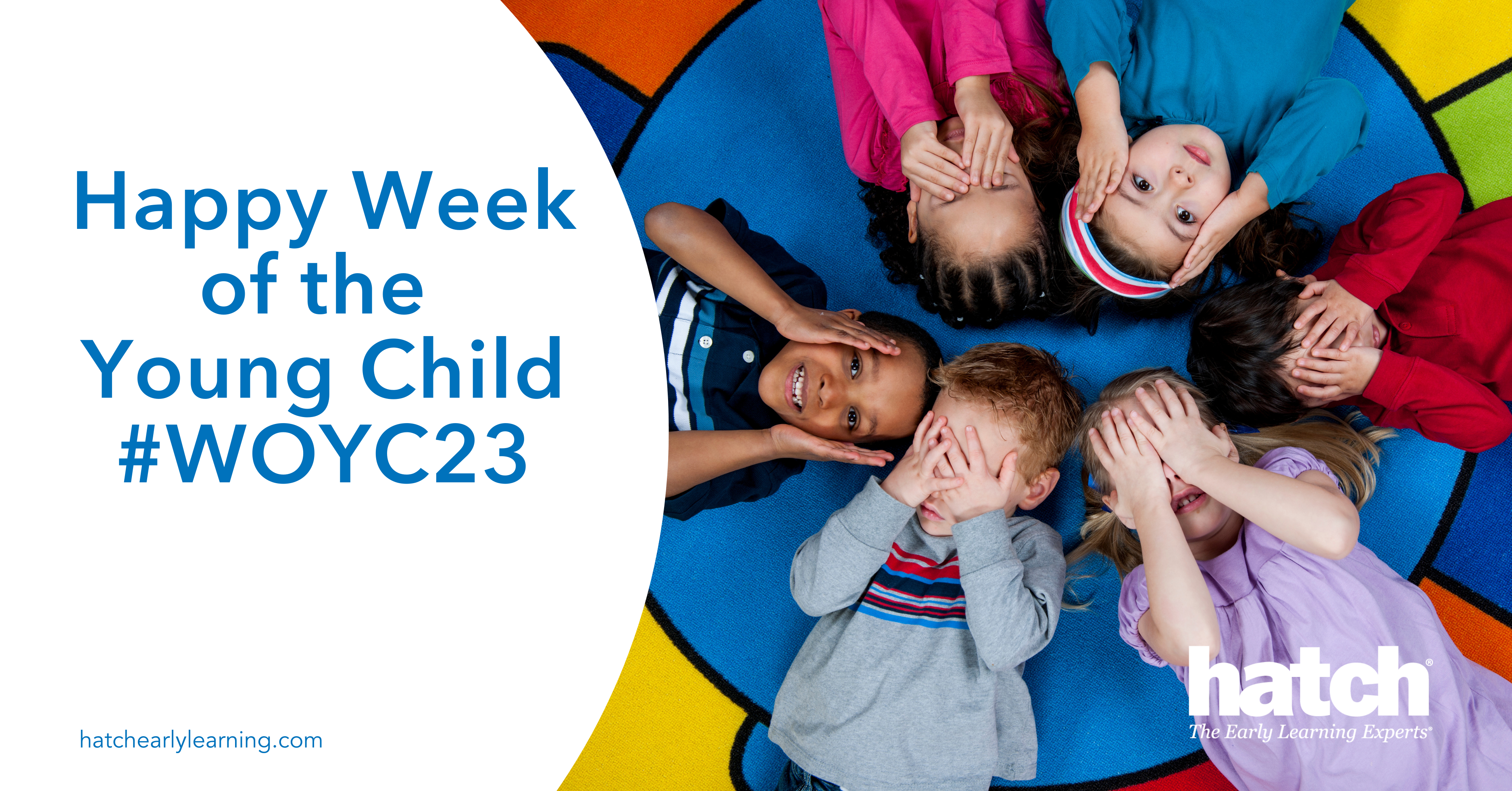
Happy Week of the Young Child! Hosted by the National Association for the Education of Young Children (NAEYC), this week is dedicated to honoring the unique needs of young children and recognizing the early learning programs that meet those needs. Hatch™ is proud to support this important initiative and help teachers and parents inspire a lifelong love for learning! -
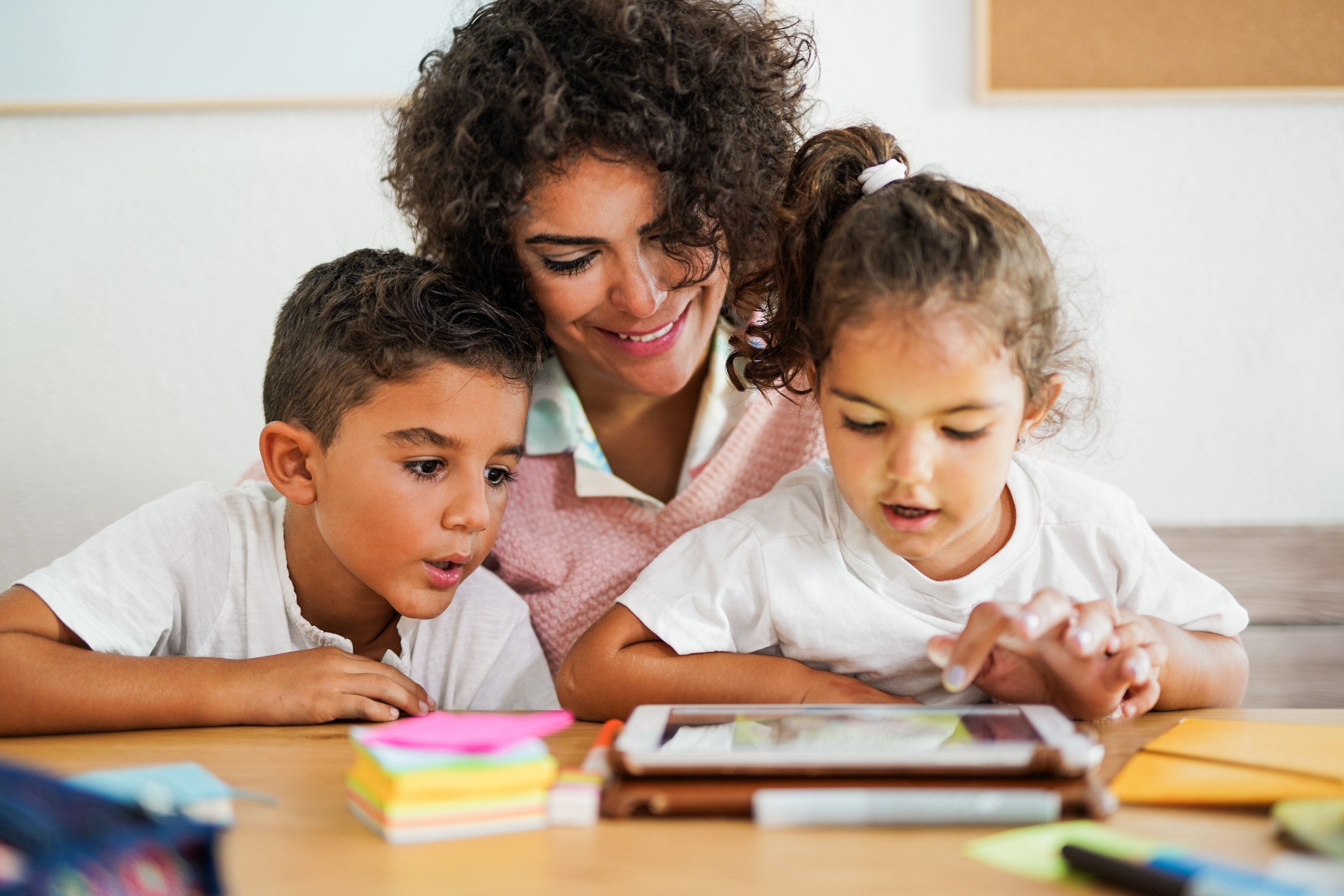
English language learners are an important segment of the early childhood population to consider when designing supplemental instructional tools. The complexities of addressing children’s native languages within curriculum primarily designed for English-speaking students presents teachers with a challenge. However, some supplemental instructional tools can save teachers valuable time, boost confidence and overall feelings of efficacy for children attempting to learn a new language, and further unlock levels of proficiency for English language learners. -

Children love to play games, from hopscotch to Go Fish. Games are fun, engaging activities—and early childhood educators can utilize children’s love of games to help them learn. -

What a difference a summer makes! For the second summer in a row, pre-K students in Georgia utilized Ignite by Hatch™ to jump-start their learning and ignite school readiness. Ignite is a developmentally appropriate and research-backed digital learning tool for early learners. -

Early childhood leader, Kathy Hollowell-Makle cites a leading reason for her interest in early learning was the fact that time and time again, children were entering DC kindergarten classrooms “unprepared,” even though they had exposure to preschool programs. -
.png)
Data collection and analysis is inherent to teaching and learning. Whether or not educators intentionally collect data, they are constantly using information about the children in their class to inform instruction. However, how educators collect, analyze, and use that data when broken down can be formalized in a process that can lead to more powerful results for all children. Plus, at the end of the day can ultimately help save educator’s time in planning and reporting out information to families and administrators. -
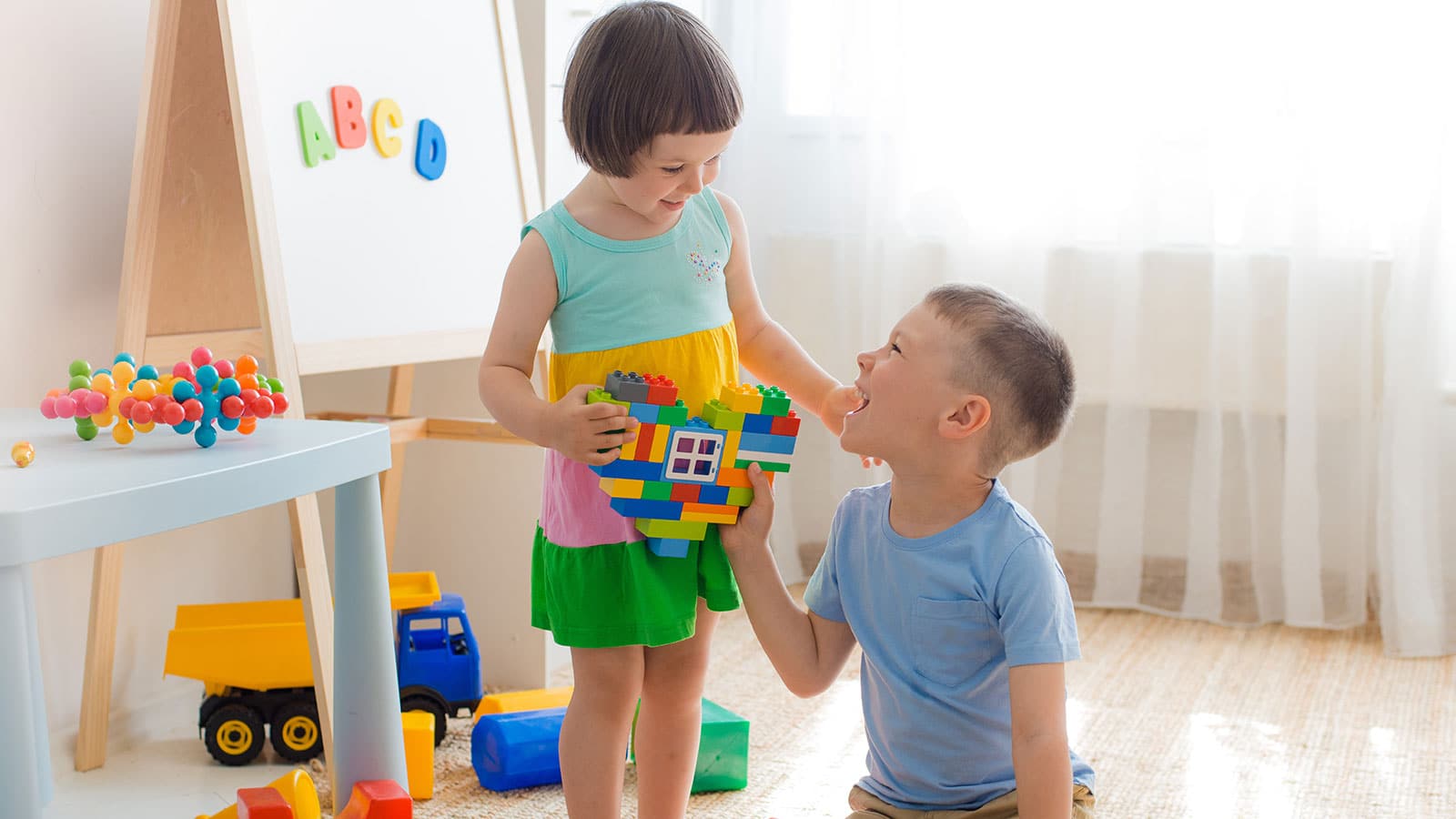
Educators continue working to close learning gaps resulting from school interruptions as they celebrate children’s growth along the way. While many learning programs have helped children make enormous strides in literacy and math, closing the gap in social-emotional learning has proven more difficult. -
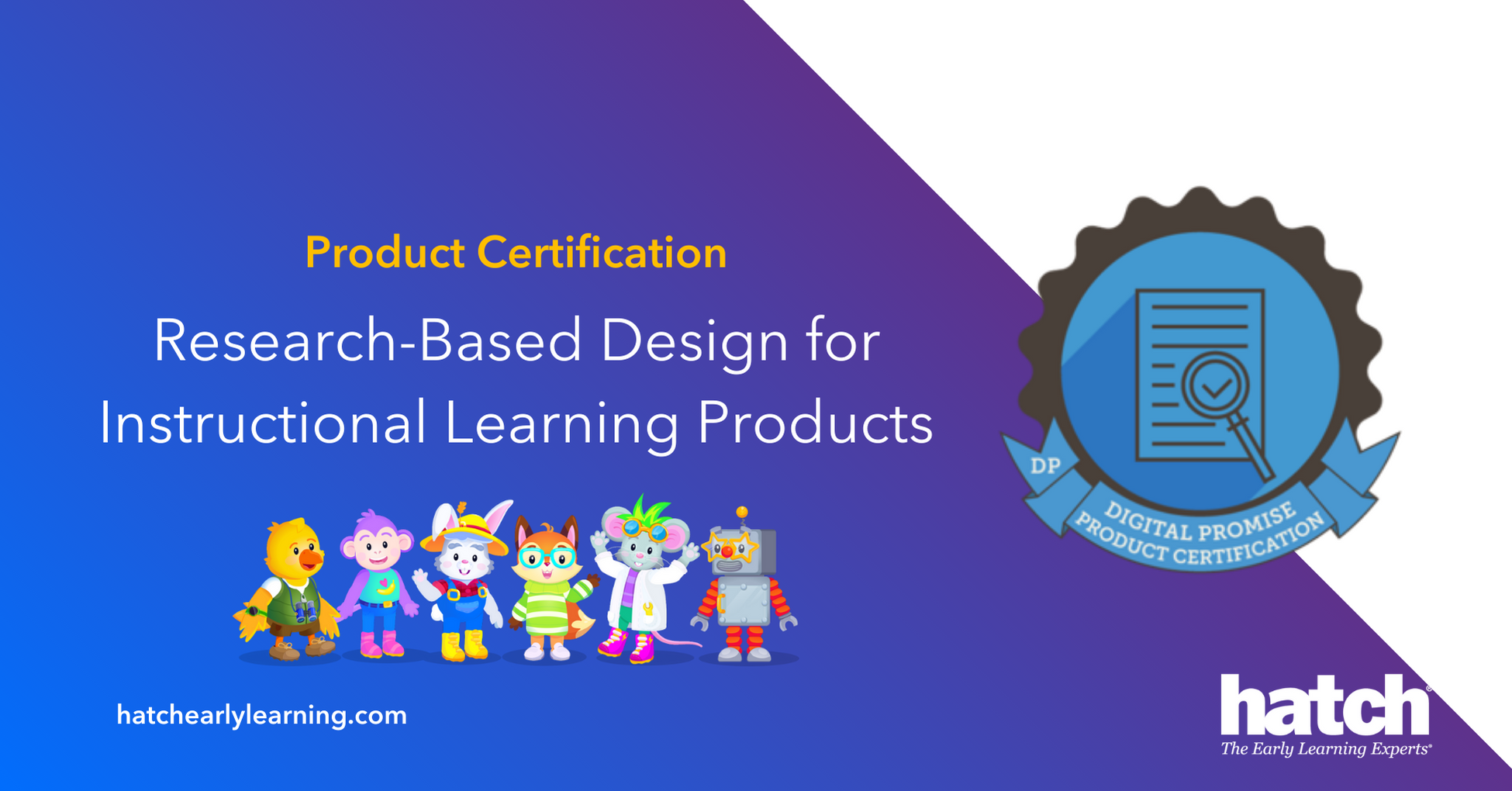
Ignite by Hatch™ has earned the Research-Based Design for Instructional Learning Products: Product Certification from Digital Promise. This product certification serves as a rigorous and reliable signal for district and school leaders, educators, and families looking for edtech products with a confirmed basis in research about learning. -

“Relevant learning outcomes must be well defined in cognitive and non-cognitive domains, and continually assessed as an integral part of the teaching and learning process. Quality education includes the development of those skills, values, attitudes, and knowledge that enable citizens to lead healthy and fulfilled lives, make informed decisions, and respond to local and global challenges.” – Incheon Declaration for Education, 2016 -
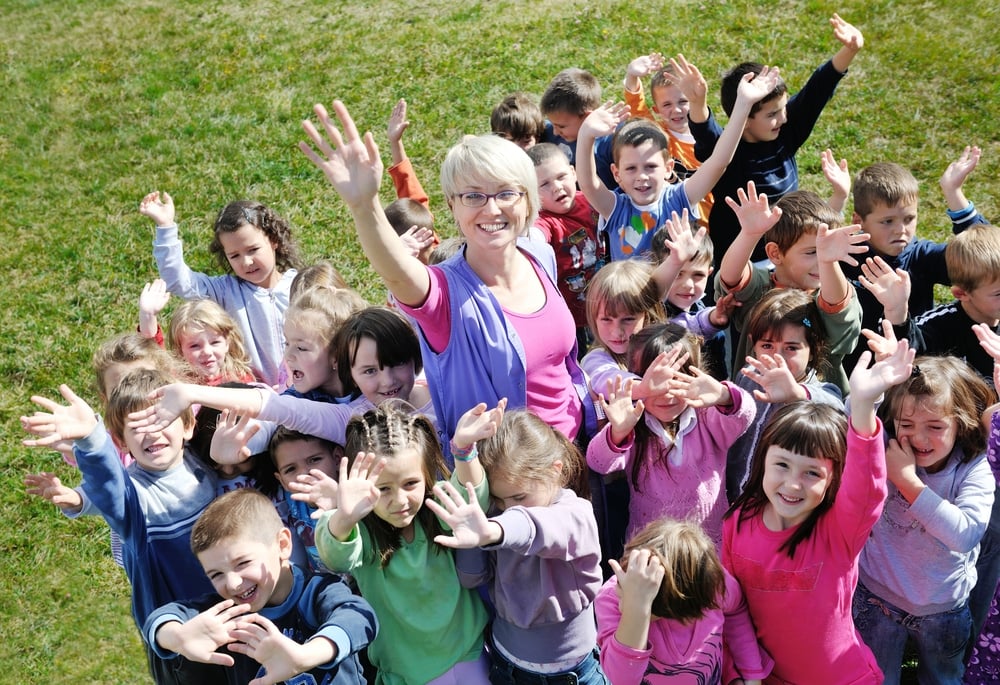
Each spring, The National Institute for Early Education Research (NIEER) publishes its annual The State of Preschool yearbook. These yearbooks provide a deep analysis of where the United States stands on its journey towards access to high-quality early childhood education for children ages 3 to 5. Last year, the NIEER report The State of Preschool 2021 yearbook illustrated how the pandemic’s impact had set that progress backward. There were plenty of thought pieces written in response to last year’s report, sounding the alarm on the dire need to get back that decade of lost progress, including our own here at Hatch. This year’s NIEER report, The State of Preschool 2022 yearbook, was highly anticipated to see how the country could come back from last year’s decline. -

When it comes to your teachers’ professional development, there’s so much to consider. Not only do you have to think about you’re their individual learning styles, but you also have to remember just how difficult professional growth can be when time is so limited. Even with those constraints aside, there’s always another looming barrier to overcome — funding. At Hatch Early Learning, we understand how important supporting your teachers with high-quality professional development programming and tools really is. That’s why we’re here to help you identify funding sources available outside the typical ways you find funding and how you can apply it to support your teachers. Here are two more funding resources to tap to help take your teachers to the next level in professional development: -

Every year, for the past two decades, the National Institute for Early Education Research (NIEER) at Rutgers University releases their State of Preschool report. Over that time, we have seen incremental progress in state preschool enrollment, spending per child, and quality initiatives; however, this year’s report for the 2020-2021 school year illustrated the pandemic impact has set us back. -
-1.png)
Introducing your children to mindfulness is one of the most effective ways to ensure their success both inside and outside of the classroom. Whether you want to help kids improve focus, enhance their social-emotional learning, or help them stay on track academically, the benefits of mindfulness will have a lasting impact on their health and well-being. All you have to do is practice! If you’re looking to add a mindfulness practice to your teaching toolkit, here are a few proven strategies to effectively incorporate it into your learning program: -
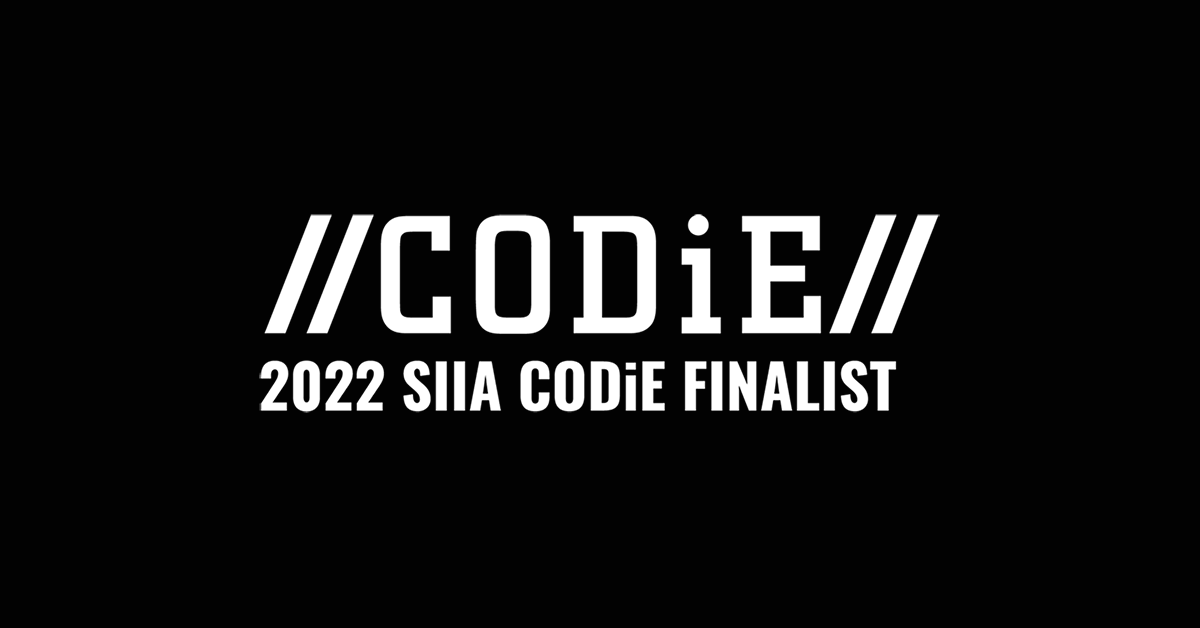
Ignite by Hatch™ earns nod from industry leaders [Winston-Salem, North Carolina] (April 25, 2022) Hatch Early Learning today announces that Ignite by Hatch™ was named a 2022 SIIA CODiE Award finalist in the Best PreK / Early Childhood Learning Solution category. CODiE finalists represent the best products, services and people in the education and business technology industries. -
.png)
When you look at the education funding you receive as separate layers that can be blended, or braided, together, you can provide even stronger support for your learning program. -
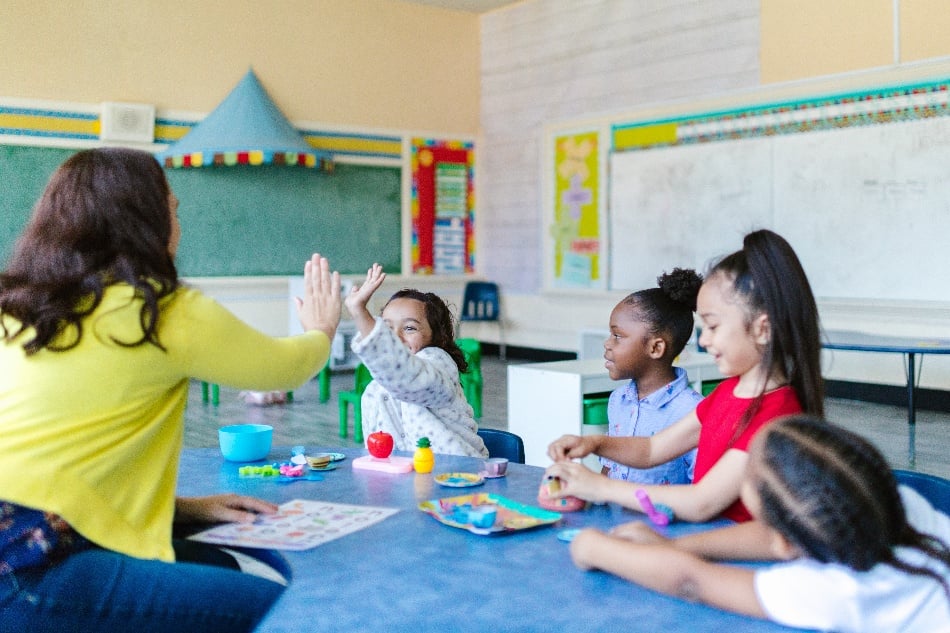
Nurturing a child’s cultural identity is foundational to supporting social-emotional learning and development. When cultural identities are nurtured, you’ll not only build trust and stronger relationships with children, but you’ll also ensure that they experience a sense of belonging in your classroom. -
%20(600%20%C3%97%20400%20px)%20(7).png)
While Black History Month is a terrific time to reflect on the accomplishments of America’s Black leaders — especially those who transformed education for our country’s youth — we believe it’s important to celebrate their lasting impact throughout the year. -

Family and parent involvement is a crucial part of any child’s early education. Caregivers may not think of themselves as teachers, but they play an important role in their child’s lifelong learning. While schools provide rich learning environments for children, we know that parents and families are a child’s first and most important teacher. -

With Ignite by Hatch™, we’ve seen children experience two levels of growth in just six months. And much of that progress is owed to those behind the scenes, like Kylie Rymanowicz, a content developer at Hatch, who works on Ignite. -
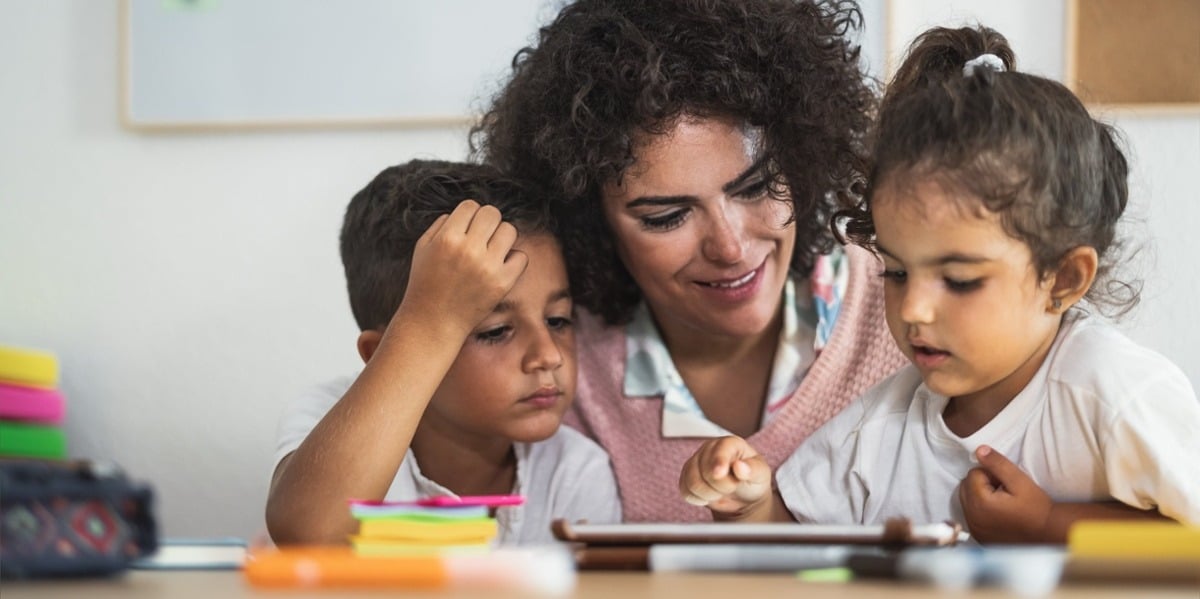
When it comes to incorporating a digital platform into your early learning program, there are a few important things to keep in mind. -

Seeing a child grow in their learning is one of the most rewarding experiences for a teacher. But when it comes to helping early learners achieve success in the classroom, there’s one important tool that’s often overlooked: actionable data. -

When it comes to helping children in your learning program achieve academic success, strong partnerships are incredibly important. And there’s no partnership more valuable than the one you build with families — but you may have to make the first move! -
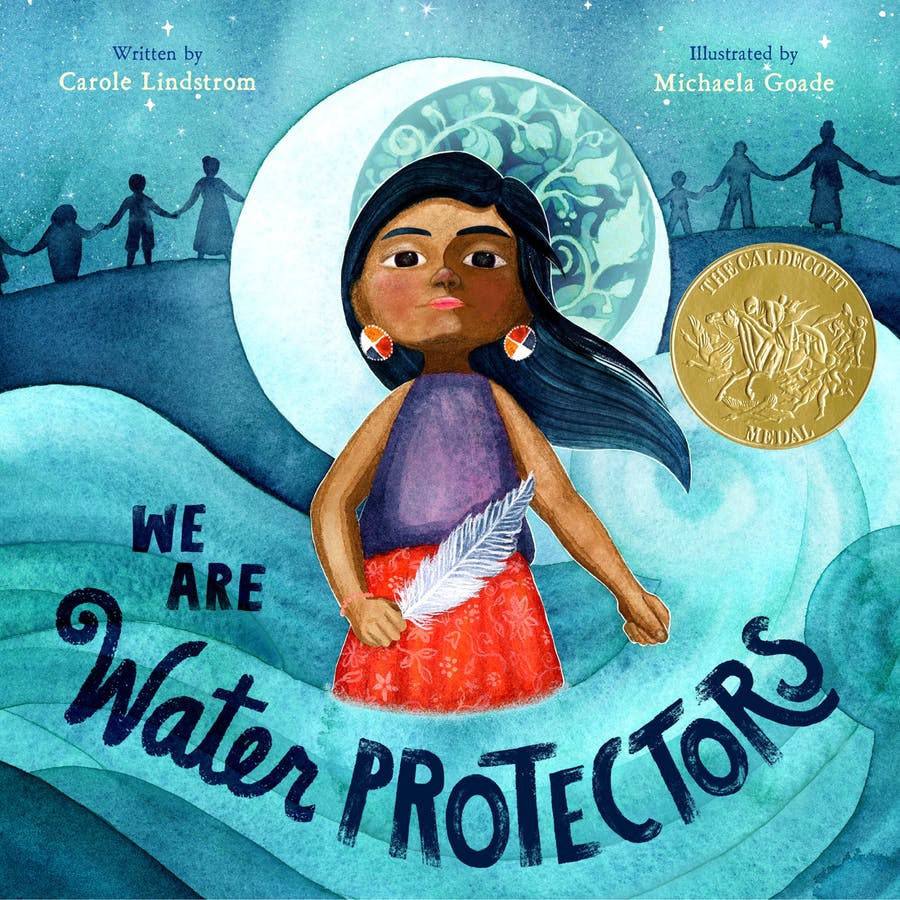
National Family Literacy Month ends today, but that doesn't mean we have to stop reading together! When it comes to instilling a lifelong love of reading among children, families play a critical role. That’s why it’s so important to encourage parents to read aloud to their children at home during — and beyond — National Family Literacy Month. -
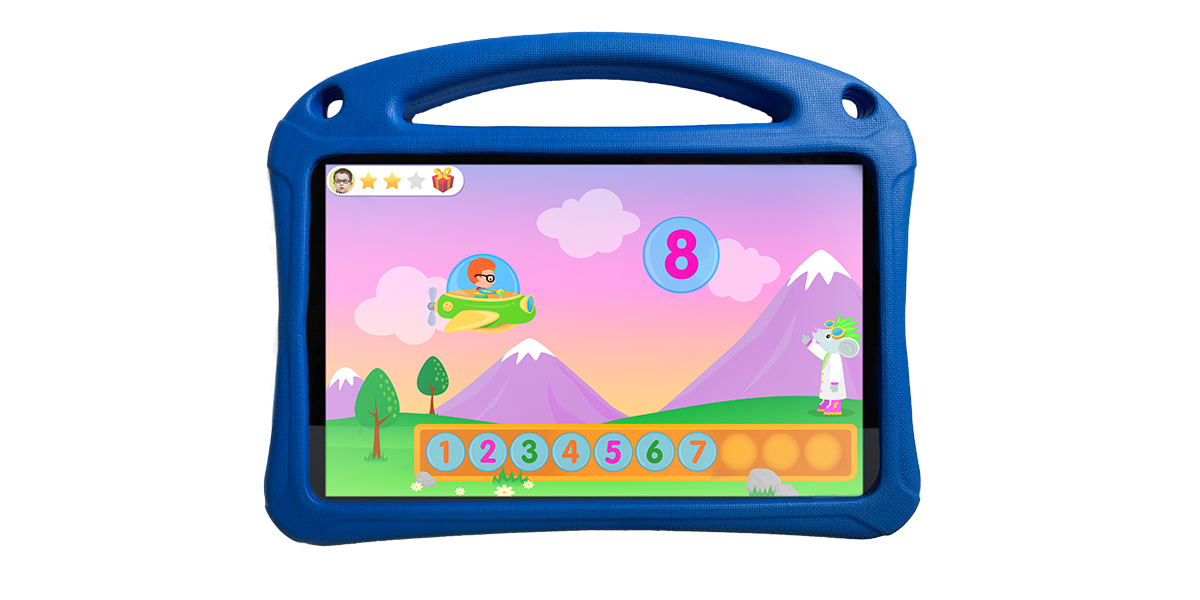
Like most early childhood educators, the main goal of Lola Vallaire-Thomas, a preschool administrator in Louisiana’s Vermillion Parish Early Childhood Network, is to prepare her early learners for kindergarten. But it’s not always easy, especially when there’s a disconnect between city, district, and state standards, and the Gold objectives her program is expected to meet. -

Understanding where a child’s strengths lie — and where room for improvement may exist — is critical when it comes to academic success. While assessments will shine a light on the skill areas that need more attention, it’s more effective to identify where additional support is needed before test time. This way you can tailor classroom experiences that not only boost learning, but make it even more enjoyable! -
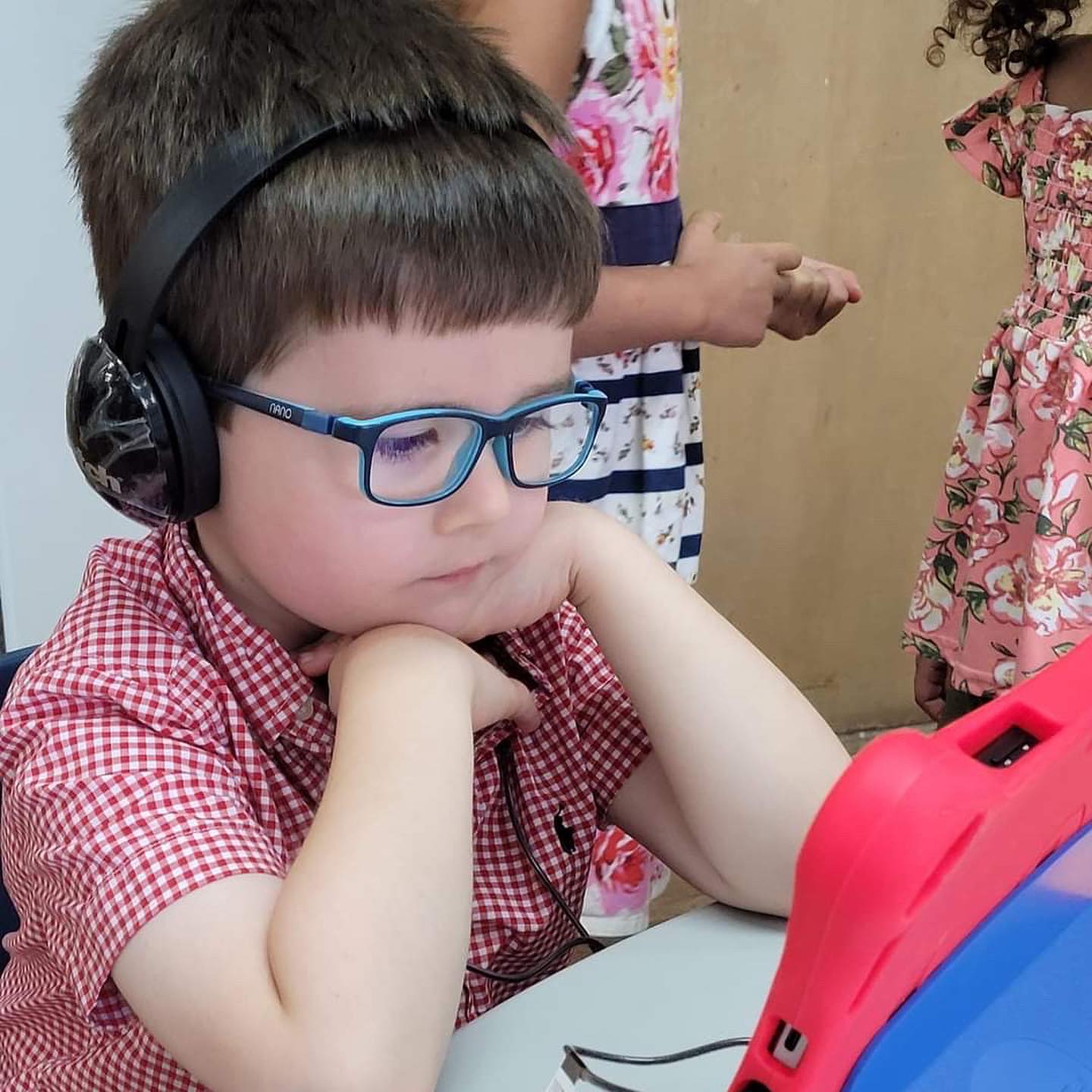
This past summer, over 2,200 pre-k children in Georgia experienced the magic of Ignite by Hatch™. And just in time for kindergarten, too, as these children achieved 2 levels of growth, on average, across 7 domains of learning in just six weeks — all by engaging in developmentally appropriate, research-backed play! -
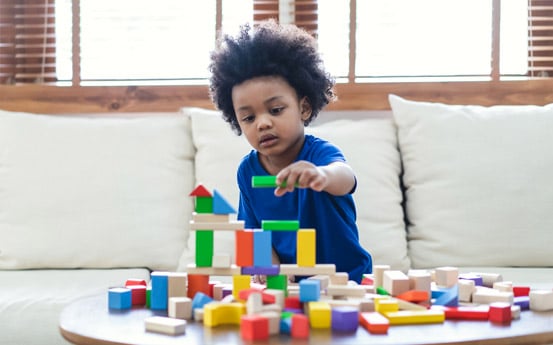
When I was in preschool, my grandma gifted me a wooden puzzle stool. She had the letters of my name made into puzzle pieces that fit on the surface of the seat. It was such a special gift, and one that I played with for many, many hours during my childhood. -

Fred Rogers often referred to the fact that “play is the work of children”, and now, as children (and adults!) cope with the pandemic, and a sometimes scary and confusing world, the natural resource of play is more important than ever! -

With unseasonably frigid temperatures and/or snow/sleet/ice blanketing much of the country, we wanted to share a list of easy-to-implement, boredom-buster activities that will help to brighten your day and keep your little ones HAPPY! -
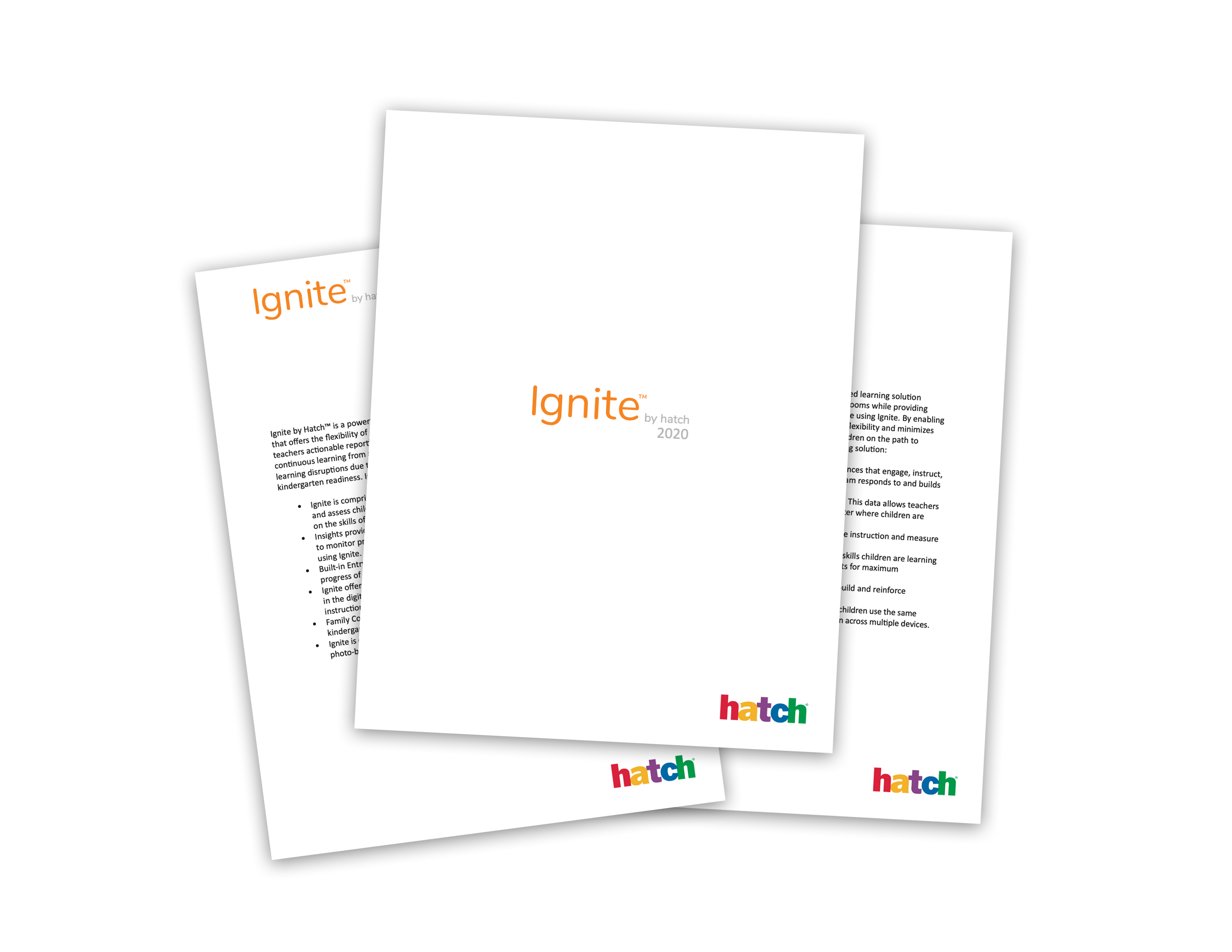
At Hatch Early Learning®, our products and resources are not only research-based, but they are also research-proven and validated. The accompanying criteria report and whitepaper help prove that Ignite by Hatch™ supports the delivery of positive outcomes for all young learners! -

In early childhood education, we talk a lot about “at-risk children”. Moreover, we do all we can to identify these students through the lens of ethnicity, language and socio-economic status. This is especially true in the early childhood classroom, where so much attention is paid to managing so many different kids with so many different backgrounds and abilities. -
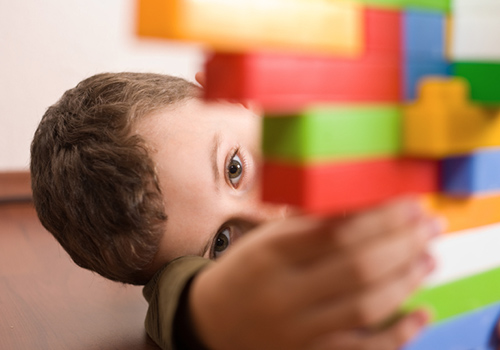
Our webinar’s speakers are so brilliant, we wish we could have asked them questions all day long. Kay Holman, Ph.D., CCC-SLP from Towson University and Erica Solliday, M.S. and Catherine Walton from Baltimore County Public Schools treated us to an insightful look into the world of autism among early learners. But since we couldn’t keep them all day, they were kind enough to choose a few questions from a recent webinar. Read on for what they had to say: -

Back to school is a special time of year. There’s a frenetic, anxious sort of energy in the air, but it’s also a curious blend of hope, panic, optimism and relief. No matter your feelings on the back-to-school season, it holds a particular type of magic for teachers, children and parents. -

For more than thirty years, Fred Rogers beamed into homes from Atlanta to Anaheim, doing what was at the time, almost unthinkable – giving his undivided attention to young consumers who couldn’t pay for advertising, nor make donations to public television or speak on its behalf. -
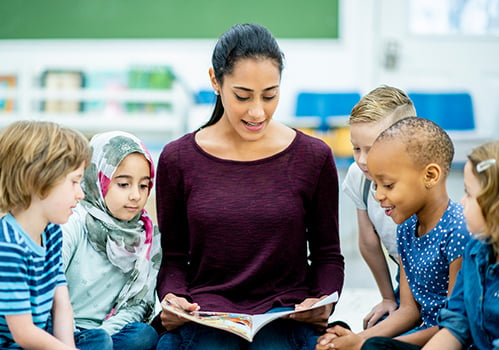
Every. Single. Child. Deserves. An. Equitable. Chance. At. An. Education. -
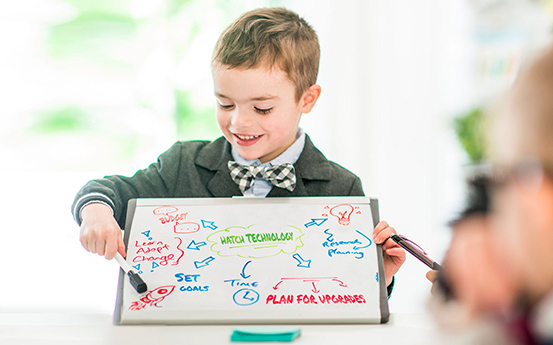
Adding the right technology to your early learning program takes time and shouldn't be rushed. (No one likes a pricey tech tool that sits on a shelf covered in dust because it didn't deliver on its promises.) So before little fingers ever touch a screen, it pays to have a plan. -
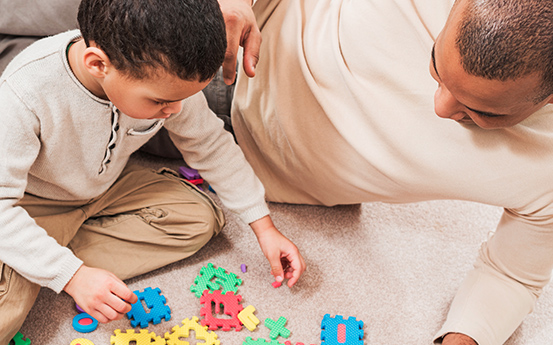
As I sit here patiently waiting for the birth of my daughter in less than 3 months, I all too often picture her emerging from the womb with an iPad, securely in her grip, loaded with various instructional resources ready to guide me for the next 18 or so years of her life. While I have come to realize this will not be the case, it has made me think about the use and implementation of technology in the earliest of classrooms. -
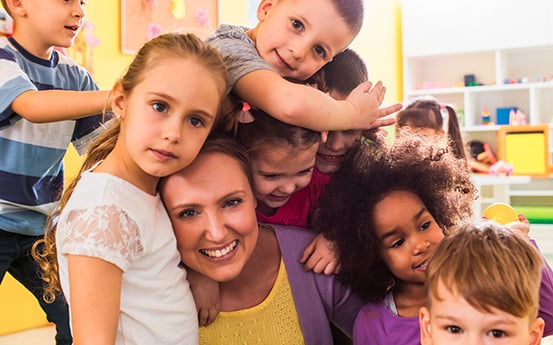
I have devoted my professional life to progressing the field of early childhood education through the use of technology. Being the leader of a mission-driven organization, much of my time has been dedicated to how innovation can help solve challenges facing our field. One of the challenges we face is how to make developmentally appropriate technology an integral part of every classroom. -

There's a confusing dichotomy when it comes to technology and early learners. One side of research and evidence tells us technology encourages growth and creativity and even helps early learners build positive relationships. -
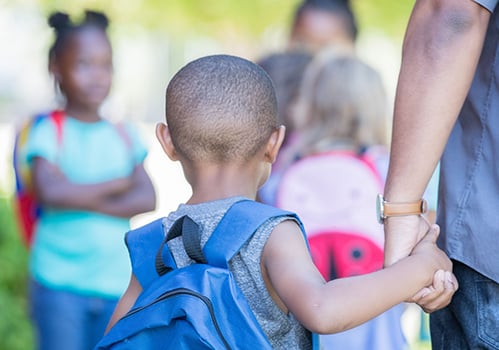
Many people envision kindergarten classrooms as being filled with tiny four-and-five-year-olds bouncing into school brimming with excitement and ready for a day filled with play and learning. A lovely scenario, but as an educator, you know it's not realistic. -

We’re living more of our lives on the internet and in front of screens than ever before. Every day, mobile technology more closely resembles magic: It has helped us become more connected and efficient, and opened up worlds that were once only visible in our imaginations. Classrooms have been impacted by technology just as much as other parts of the world, which can be exciting territory for educators. -
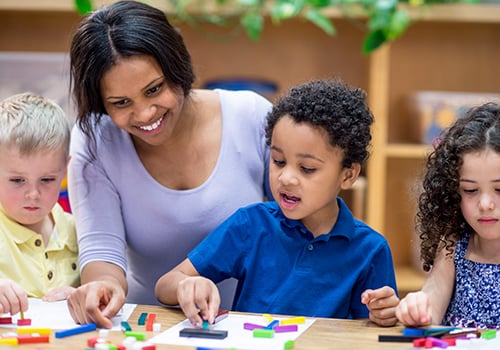
"Move forward." Xavier is 4-years-old, and he is holding a tiny tile with an arrow on it. We are playing the robot-powered coding game, Matatalab, and I've just asked him what he thinks the tile means. Granted, I had prompted him generously. Xavier's teacher, Ms. Owens, approaches curiously from across the room. "Did he speak?" she whispers. "Xavier doesn't speak that often." -

In the commercial world, data capture, storage and analysis are the backbones of innovation and optimization. Knowing this, why are educational organizations slow to adopt strategies to leverage data? Educators and their organizations have some data (graded papers, exam metrics, and pass/fail tests), but the insights are limited. While corporations are able to track changes over time and make future predictions, most early education programs are stuck with vertical reporting, which only shows the here-and-now. -
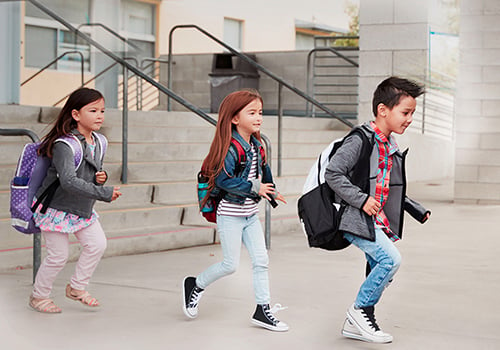
After 26 years of working in early childhood education technology, quite frankly I'm a little weary of the discussions around school readiness and the achievement gap spinning endlessly without resolution. -
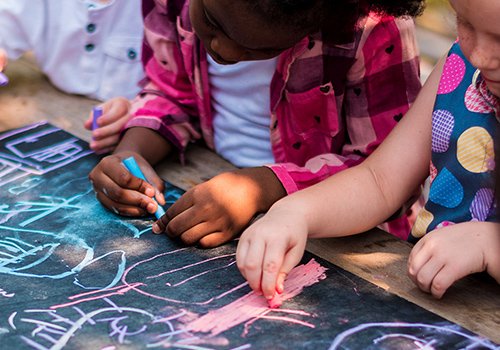
If we want all students to succeed we need to eradicate “teaching to the middle.” That approach won’t work because it leaves too many students out of the equation. -
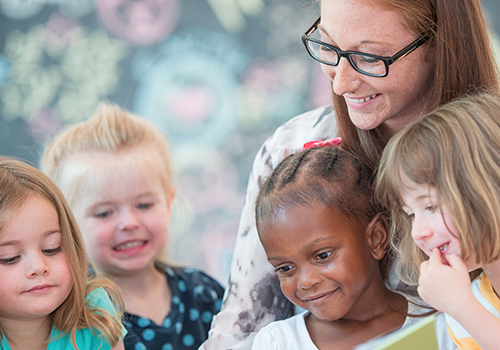
A new school year means loading up your classroom with supplies. But along with the usual fresh bottles of finger paint and Kleenex boxes, early childhood educators need to find an extra supply of a less tangible resource: time. -

Running! Climbing! Jumping! These are important elements for optimal growth and development in young children. Not only are children strengthening bones and muscles, but they are also building their brains! Young children need time for active, full body play every day. -
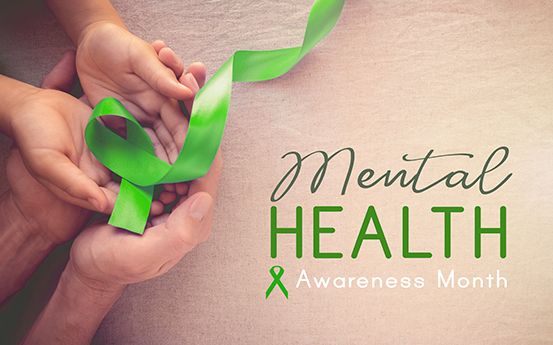
Since 1949, the month of May has been observed as Mental Health Month in the United States. The purpose of Mental Health Month is to raise awareness about the importance of Mental Health and stop the stigma associated with it. Mental health is defined as our emotional, psychological, and social well-being. It effects how we think, feel, and act in response to events that have happened in our lives. -
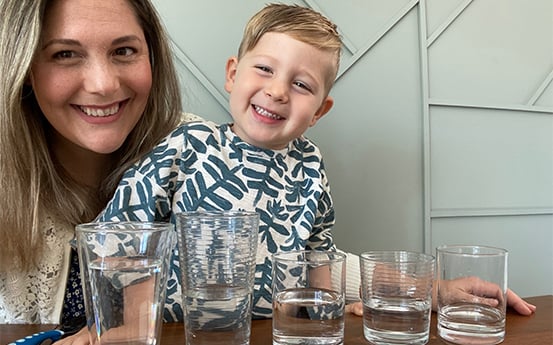
Normal has changed! For my family, the new normal includes my husband and me working full-time from home while caring for and educating our 3.5-year-old son. Even though we are approaching the 3-month mark of the stay-at-home order, we are still getting used to the shift in our day-to-day routines, roles, and responsibilities. Meanwhile, our son is still adjusting to being without classmates, friends, teachers, and his prior pre-school days packed with engaging activities. -

Do you remember asking your parents or other family members to tell you a story when you were younger? I sure do! I know my parents can still hear the echo of my whiney plea: “Tell me a story!” That said, the memories created when my family relented and told me real stories about their past, or made-up stories about the future, are among my favorites! -

Lily and her dad are playing outside in their backyard. They have been looking for bugs! Lily spots a caterpillar and, with much excitement, calls for her dad to join her. -
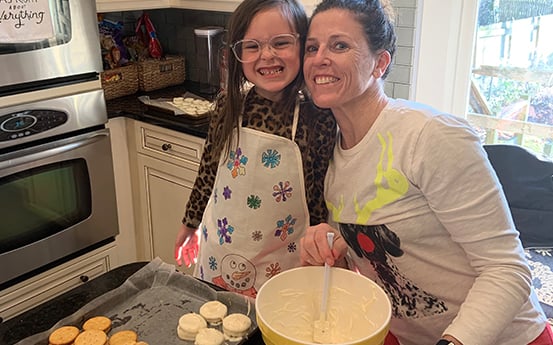
Happy Teacher Appreciation Week! (Though a week feels so insufficient.) Now more than ever, parents across the country have appreciation for everything teachers do for their children. Teachers are selflessly motivated to care for, influence, and inspire development in children. Every day, as we interact with members of our community, find comfort in books, and witness scientific and engineering feats, we see the positive impact of teachers. -
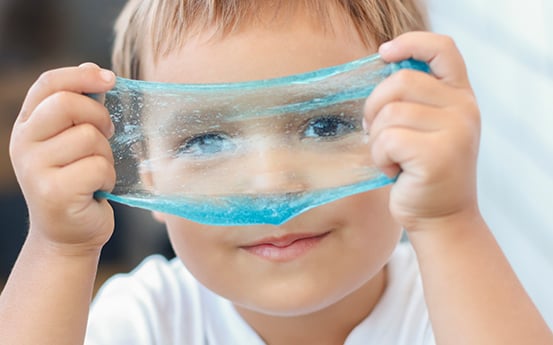
What is a cloud? Why do boats float? How does a car work? Young children have an innate ability to ask questions like this every day, in fact, researchers estimate that preschoolers ask an amazing 76 information-seeking questions per hour?! Since curiosity is at the heart of all innovation, the earlier we help children harness and direct their interest in exploring the world around them, the more motivated they will be to uncover the answers! -

The combination of closed libraries and my son’s constant request for the same stories to be read aloud prompted me to research and develop some tips and tricks to help us all maximize daily read-alouds and repetition. Because these are research-based, we can all feel good about integrating these techniques into our daily routine! -

When the COVID-19 pandemic hit, working from home full-time wasn’t an adjustment for me; I’ve been doing that for years. However, working from home full-time with a two-year-old (Jack) and four-year-old (Frankie) at home was uncharted territory for me. It’s a balancing act that millions of parents are suddenly trying to master quickly and with a little bit of grace, if we’re lucky! -

Allow me to set the scene: I am propped on a stepstool in my daughter Lucy’s bathroom. I’m balancing my laptop on my knees as Lucy enjoys her 2nd popsicle (sugar-free = lunch?), plays, and splashes! I already feel like this a “mom win” because the popsicle in the bath makes for an almost-no-mess, very little stickiness situation! It is 11:41 AM, and I am on a conference call with my team, and because we are all working from home, our cameras are on as we connect virtually. -
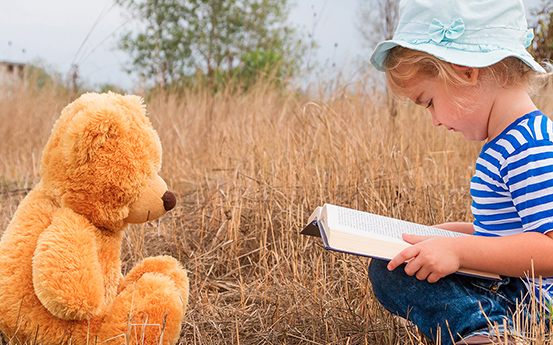
Your alarm clock goes off. You have about 30 minutes until your child wakes up (if they haven’t already), and you are thinking about all of the conference calls you have today or the big project that is due at the end of the week. You ask yourself, “How am I going to get all of this done?” And then, “How am I going to get all of the this done AND make sure my child is engaged all day?” -

As our country works together to implement practices aimed at mitigating the public health crisis caused by COVID-19, Hatch is committed to helping early childhood programs identify solutions to provide children with a high-quality early childhood education while implementing guidance from public health officials. It is important that we all implement health and safety precautions to slow the spread of COVID-19. -

The use of technology in the early childhood classroom has been a conversation of debate for many years. Parents and teachers alike have concerns regarding screen time and the appropriateness of using technology with our youngest learners. However, now more than ever technology can support families and teachers during this unique school year. -
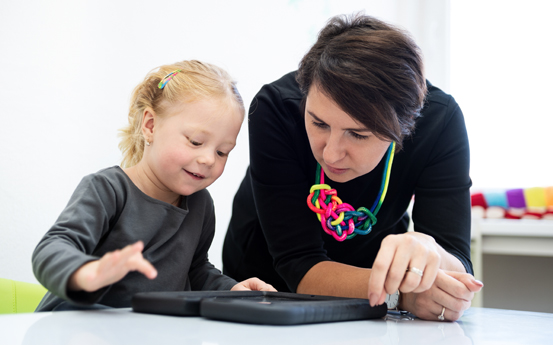
Because of the pandemic, a lot of us teachers are starting the year off in complicated settings. Settings vary from school to school, and district to district. A lot of us have adopted a 100% virtual model, where our students stay at home, and we can provide instruction from the comfort of our own homes. -
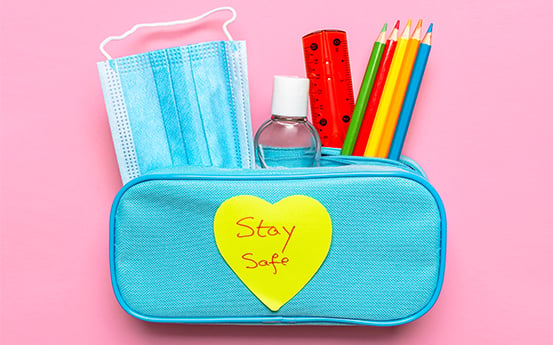
August is one of my favorite months of the year. Here in the South, it signals that fall is on its way and that it’s time for our kiddos to go back to school. My daughter, Nora, turned three in April and is going into her second year of preschool. Although our local school district has decided to host school virtually for the first nine weeks, my daughter’s school will be returning to in-person instruction. -

Typically this time of year, we as parents would be hitting stores looking for school supplies, back-to-school clothes, and new lunch boxes. Instead, many of us are trying to figure out how to manage our daily lives with the added pressures of online learning and young children in the home. -

For a long time, we have known that a child’s earliest learning is focused on motor development. An infant’s early movement experiences are beneficial to optimal brain development, and the connection between moving and learning continues well beyond the child’s first steps. With that in mind, it is imperative to encourage movement in every child’s play. -
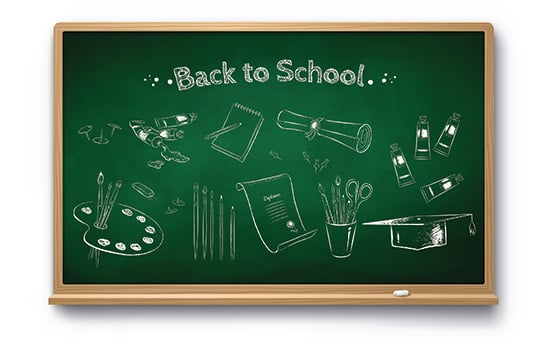
First Days of School… One of my earliest memories revolves around my first day of kindergarten. Living outside of Boston, our house was right next to the elementary school. My mom took my hand in hers, and we walked together towards the beginning of my academic career. Donning a new yellow dress, tennis shoes, pigtails, and a yarn lanyard with my name printed in big letters, I was ready to go; in hindsight, I am certain my mom and I shared similar emotions: uncertainty, excitement, and anticipation! -

The summer is passing quickly, and the anxiety associated with going back to the classroom is at the forefront of teachers’ and parents’ minds. My daughter will start back to preschool next month. Over the last few months, she has missed her friends, her teachers, and the familiar routine of going to school. As a mom, I am anxious for her to return to those experiences, but I also want to wrap her in bubble wrap (with a mask, of course) covered in sanitizer to ensure she is safe. -
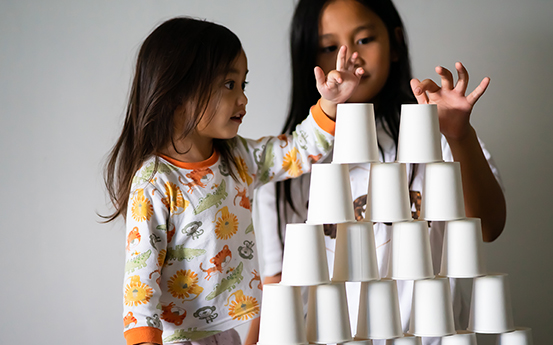
If you are among the many parents who were propelled into the role of a full-time teacher of little learners this spring, we know you need a break. Unfortunately, taking the summer off, isn’t an option. Research shows that continual learning is the best way to keep young minds engaged and progressing. So, don’t stop planting little seeds. They can help reap a lifelong desire for knowledge and learning. -

The new normal. How many times has that been said in recent months? COVID-19 has forced all of us to adjust to a different way of life. Much of settling into this “new normal” has involved technology. Many of us who work from home participate in video calls with colleagues. -
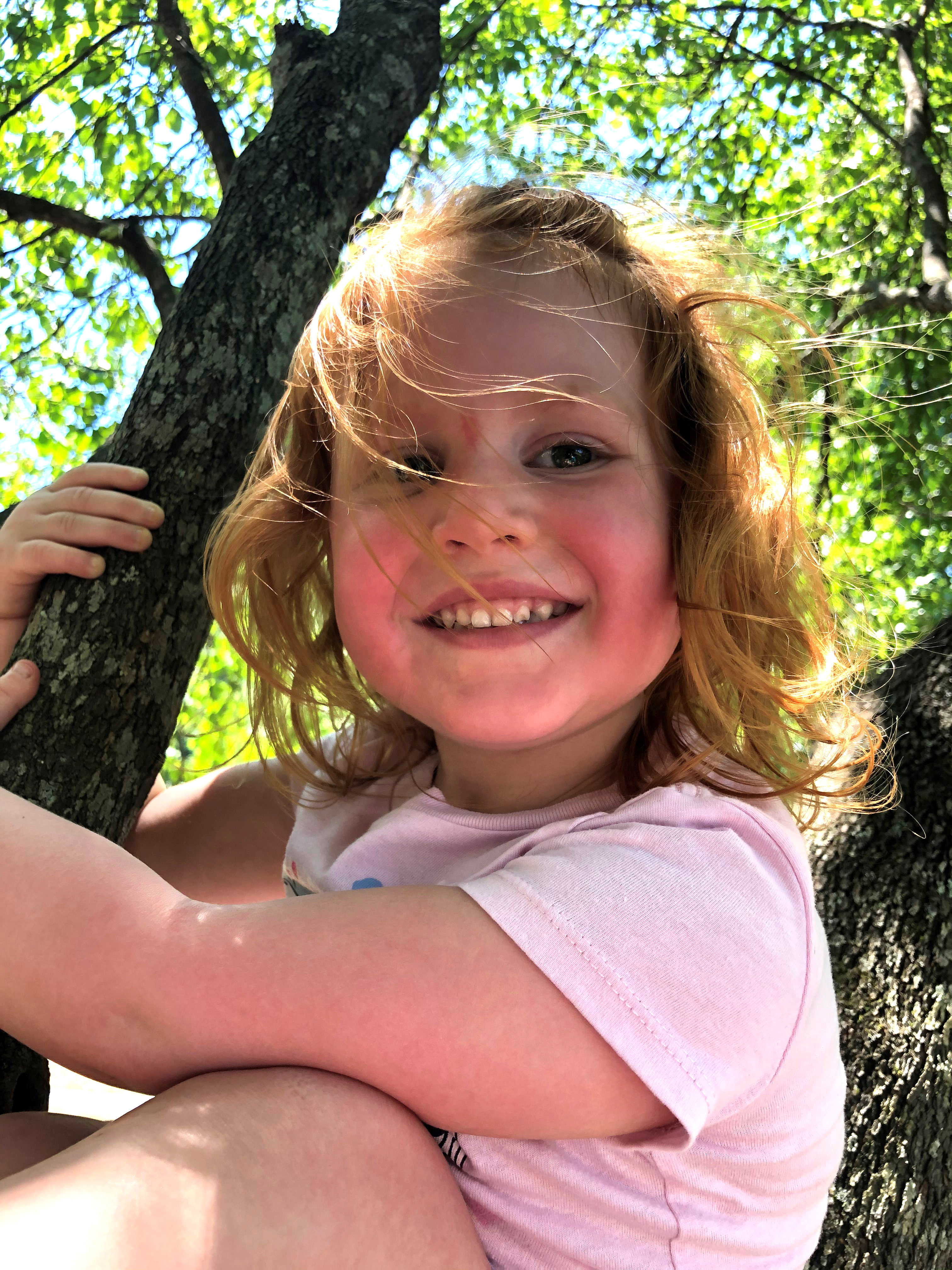
COVID-19 has presented a unique set of challenges, especially for families with small children. My family is no different. My three-year-old daughter, Nora, usually enjoys busy days, playing with friends at preschool and/or daycare, sharing greetings with those we encounter running errands, and making new acquaintances when we play at the park. Sadly, almost all of our normal routines have changed. At her young age, Nora realizes our daily lives are totally different, but she does not understand why. -
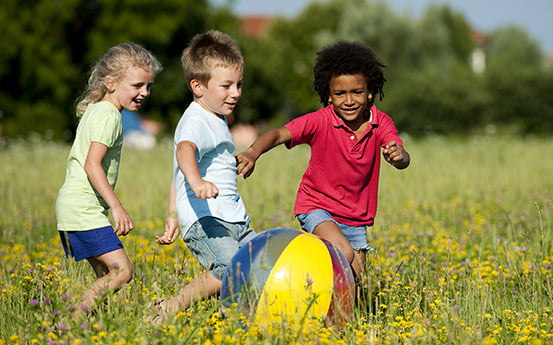
Hatch has received requests from our social media community for recommended child-friendly resources to help expand cultural literacy and provide some historical context around current events. Hatch’s Creative Diversity line was developed to provide learning resources that celebrate and honor all cultures. -
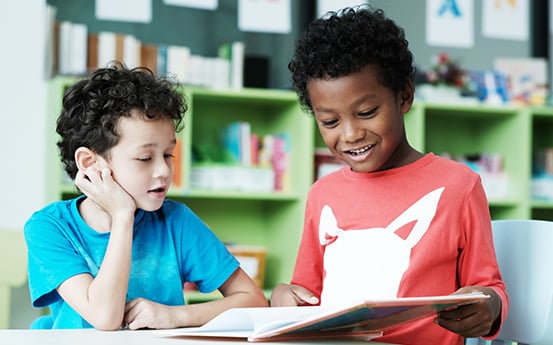
The past few weeks in America and abroad have been filled with civil unrest and protests over the death of George Floyd and the unfair treatment of people of color. As I deal with the internal turmoil within myself, I ponder about the littlest learners we encounter daily and what they are thinking. I also wonder how we, as members in early childhood education, can evoke change for a better tomorrow. -

Last weekend I was awakened by the sound of the phone ringing. It was my sister-in-law, giving me a play-by-play of the first distance-learning week of the new school year. I could tell from her voice that she was overwhelmed with the process of balancing work Zoom meetings, connecting my niece, Nia, to her school’s digital learning platform, and generally keeping the household afloat. I quickly asked, “How can I help?” -
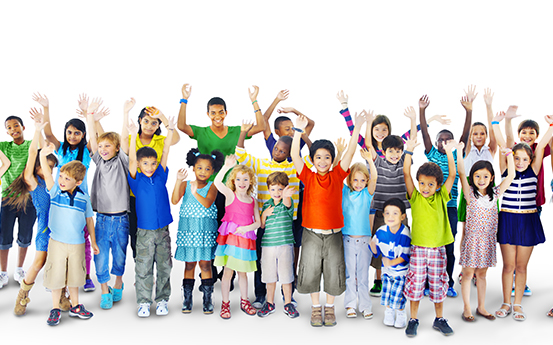
Looking back over my 13 years at Hatch Early Learning, I have witnessed a remarkable evolution. I recall the creation of our Product Development team, which took Hatch products to the next level with solid research behind the innovations. The goal at Hatch has always been to put powerful tools in the hands of teachers and, even more importantly, in the hands of children, to help them learn, grow, and contribute meaningfully to society. -

In early April, after about two weeks working from home, I read an article about the psychological benefits of feeling and expressing gratitude on a daily basis. If you’re like me, you get caught up in the rush of the day and, more often than not, don’t set aside the time for gratitude. That day in April, I decided to grab a notebook and write three things for which I was grateful and pledged to repeat the practice daily. At first, the list was trite and generally repetitive: family, health, etc. However, as I participated longer, the list became deeply personal. It also became more external; I found myself expressing gratitude more often. -

During this season of uncertainty, the Hatch Early Learning Team has reinvested its time, talent and support systems to address customer priorities in the “new normal.” Our customers have always served as our inspiration for product development and innovation. -

Teaching children life skills is not only important for self-care, independence, and sufficiency— it also allows them to feel empowered, works on socialization and reasoning, and helps develop healthy self-esteem. According to Macmillan Education, “In a constantly changing environment, having life skills is an essential part of being able to meet the challenges of everyday life.” -
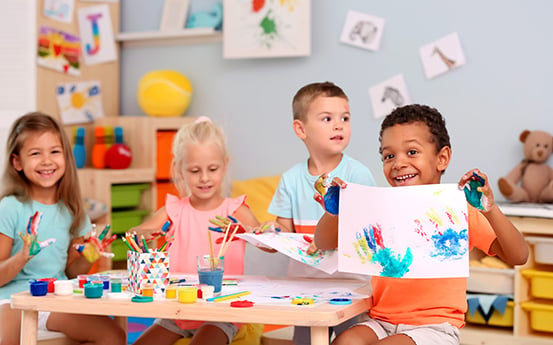
Drawing is widely recognized as part of the developmental progression of writing development. However, drawing remains to be something that it not widely taught in early childhood classrooms. Since drawing is part of a young child’s writing tools, we need to embrace this developmental stage of writing and explicitly teach drawing to young children! -
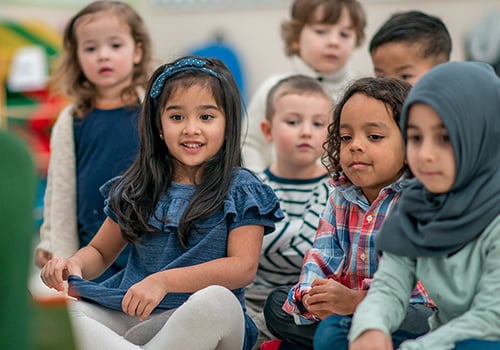
Diversity isn’t taught – it’s experienced. And that experience starts early. Early childhood education teachers are tasked with many difficult tasks over the course of a school year and as a result, diversity and multiculturalism can be easily shelved as part of a unit or as an add-on to curriculum. But in order for these lessons to be meaningful, they need to be part of everyday life in the classroom.
